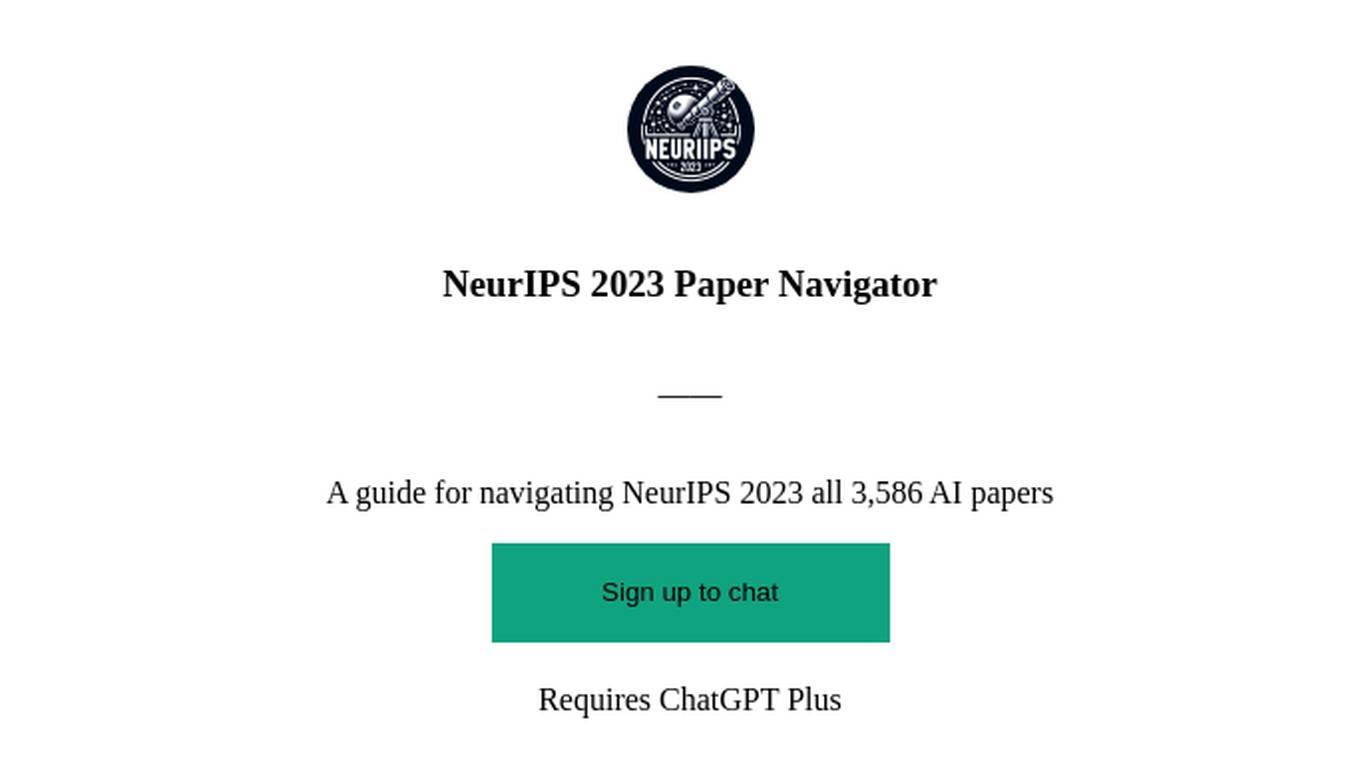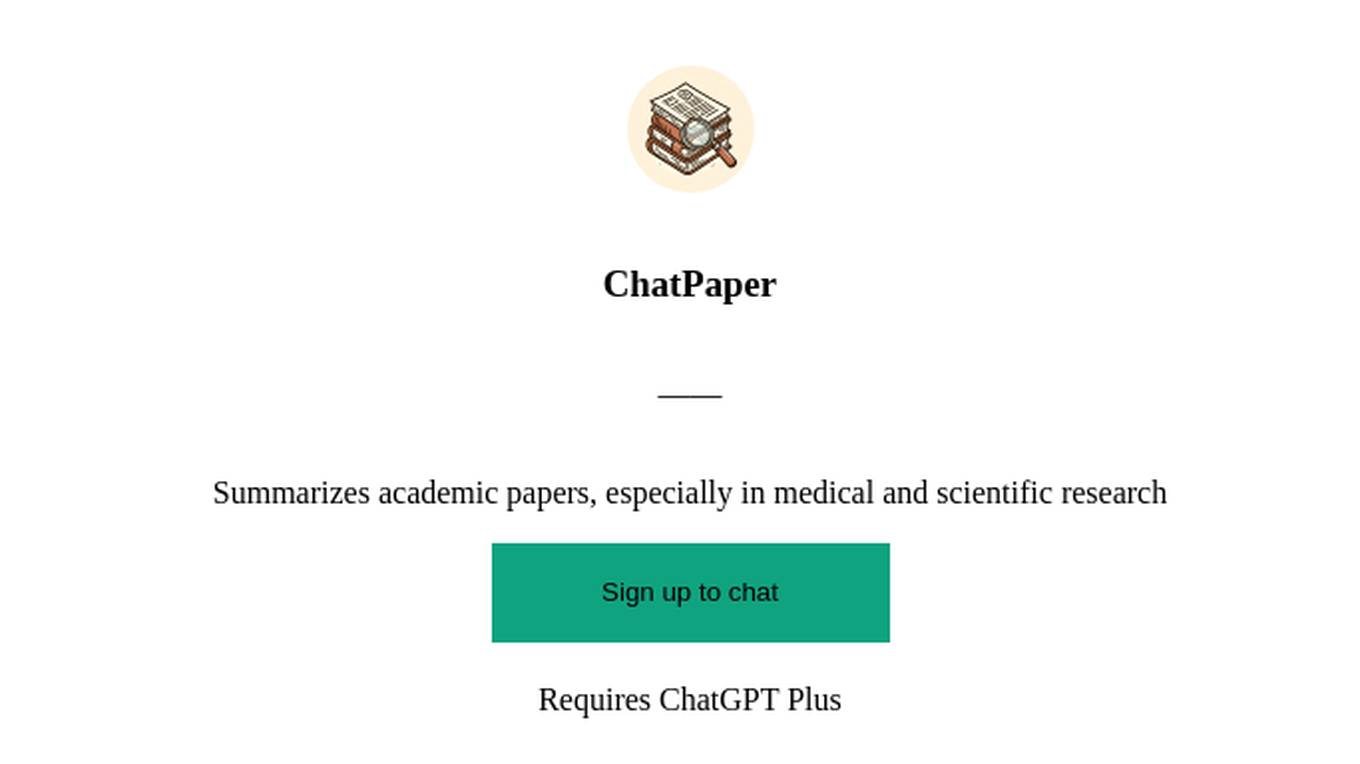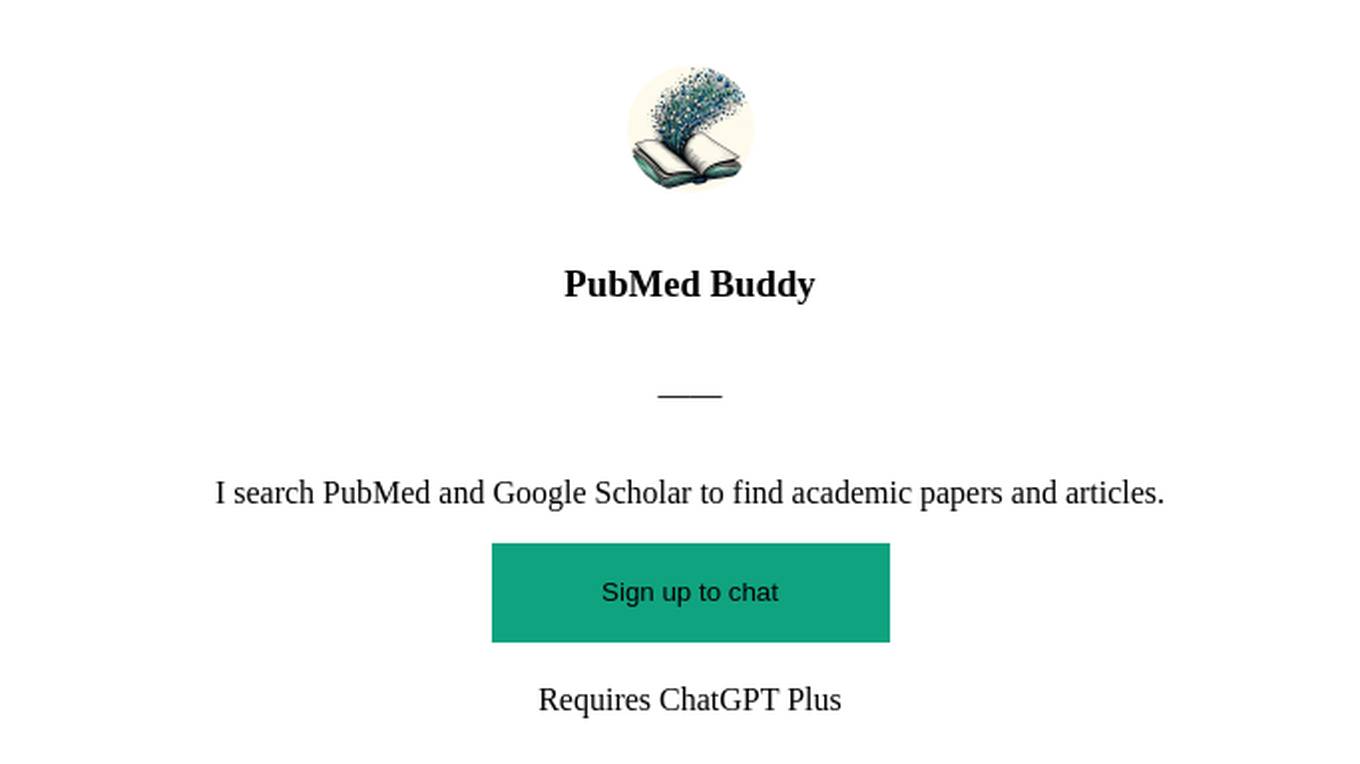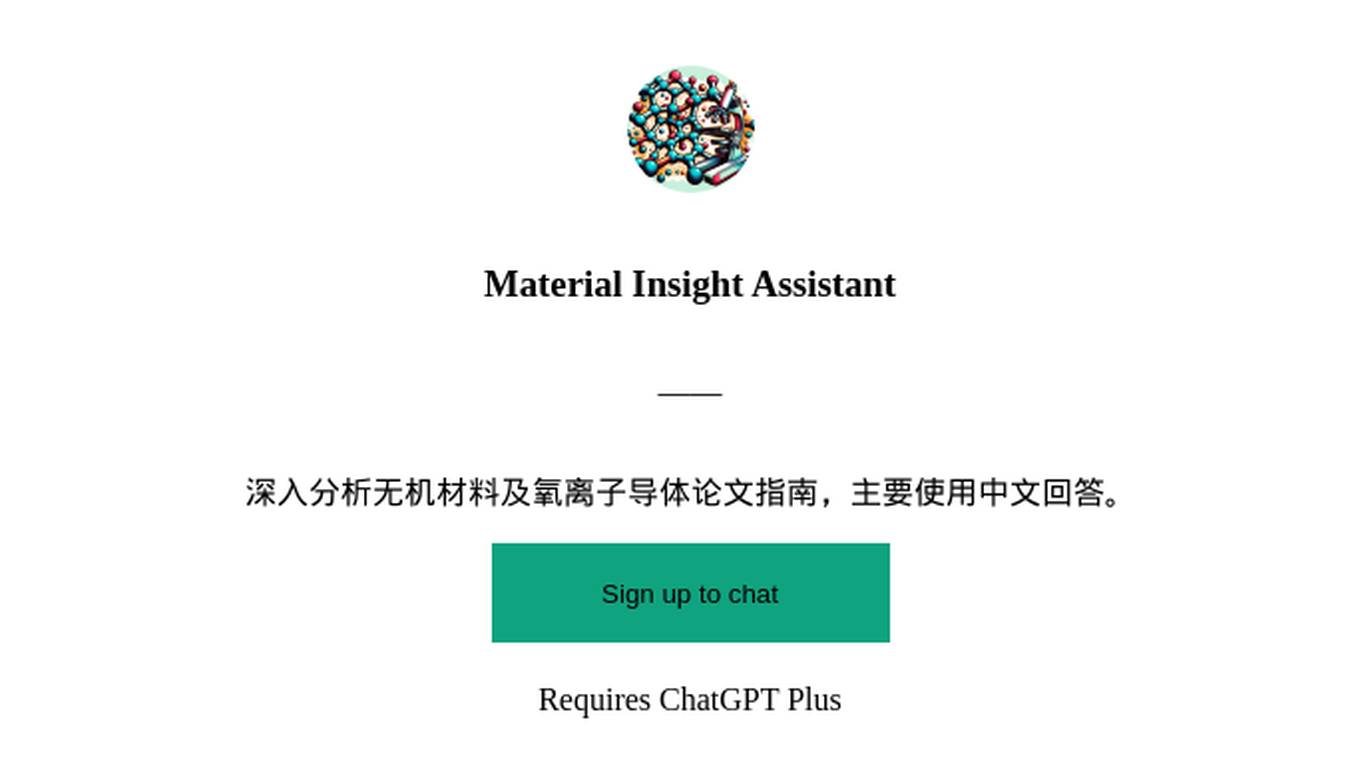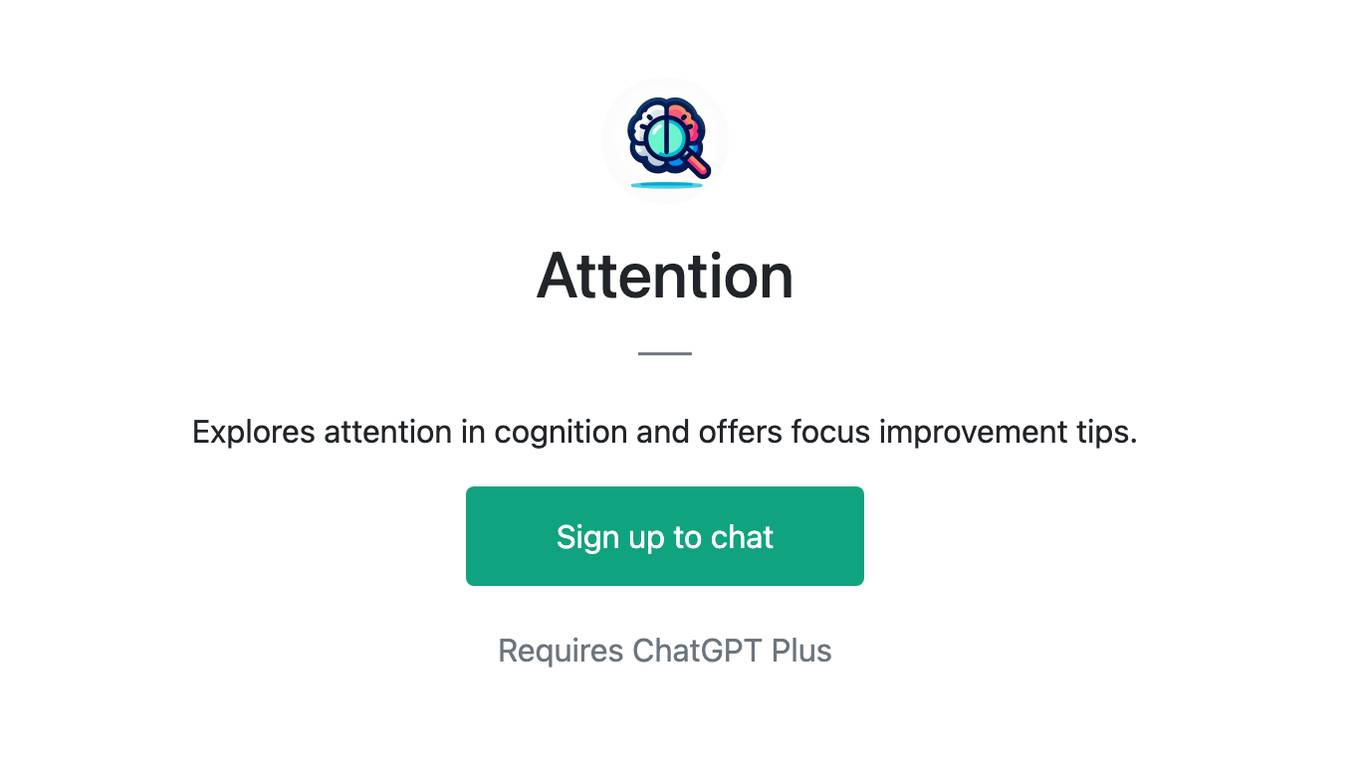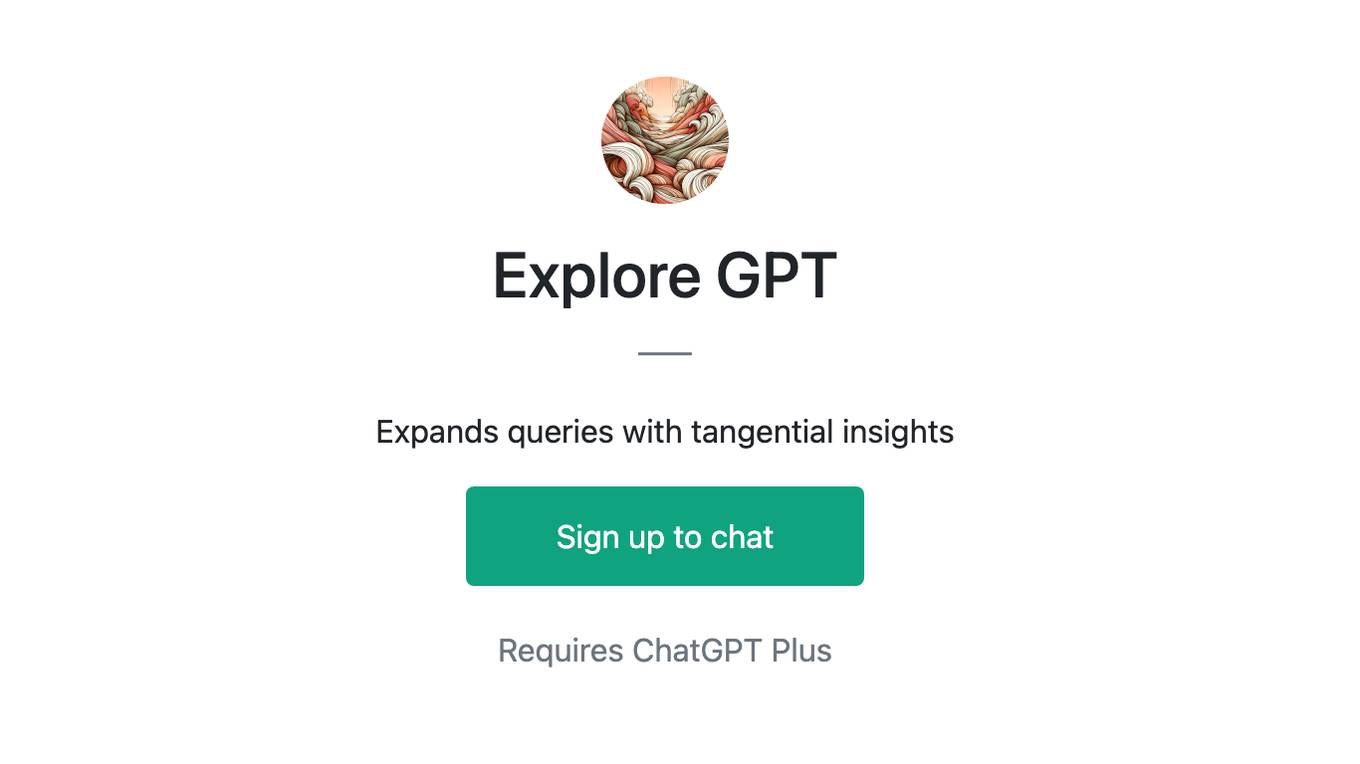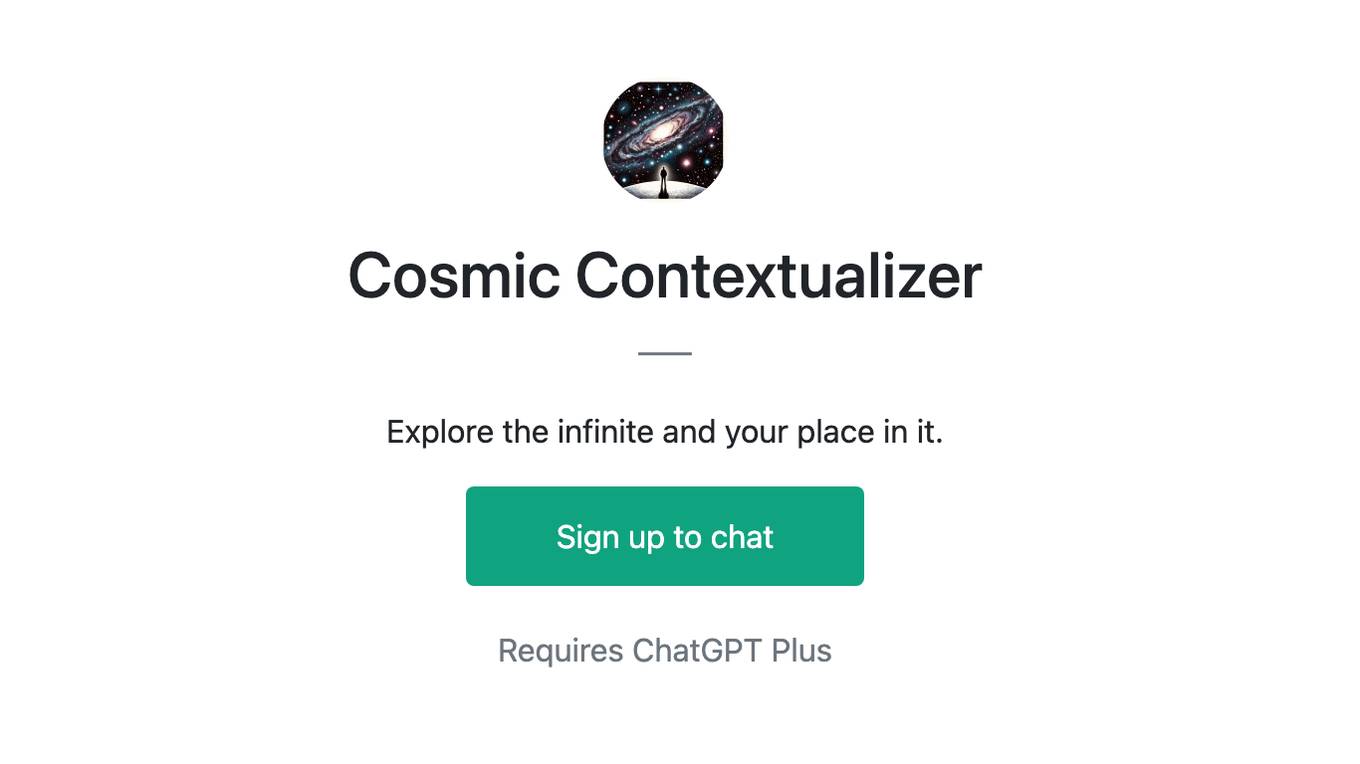Best AI tools for< Explore Papers >
20 - AI tool Sites
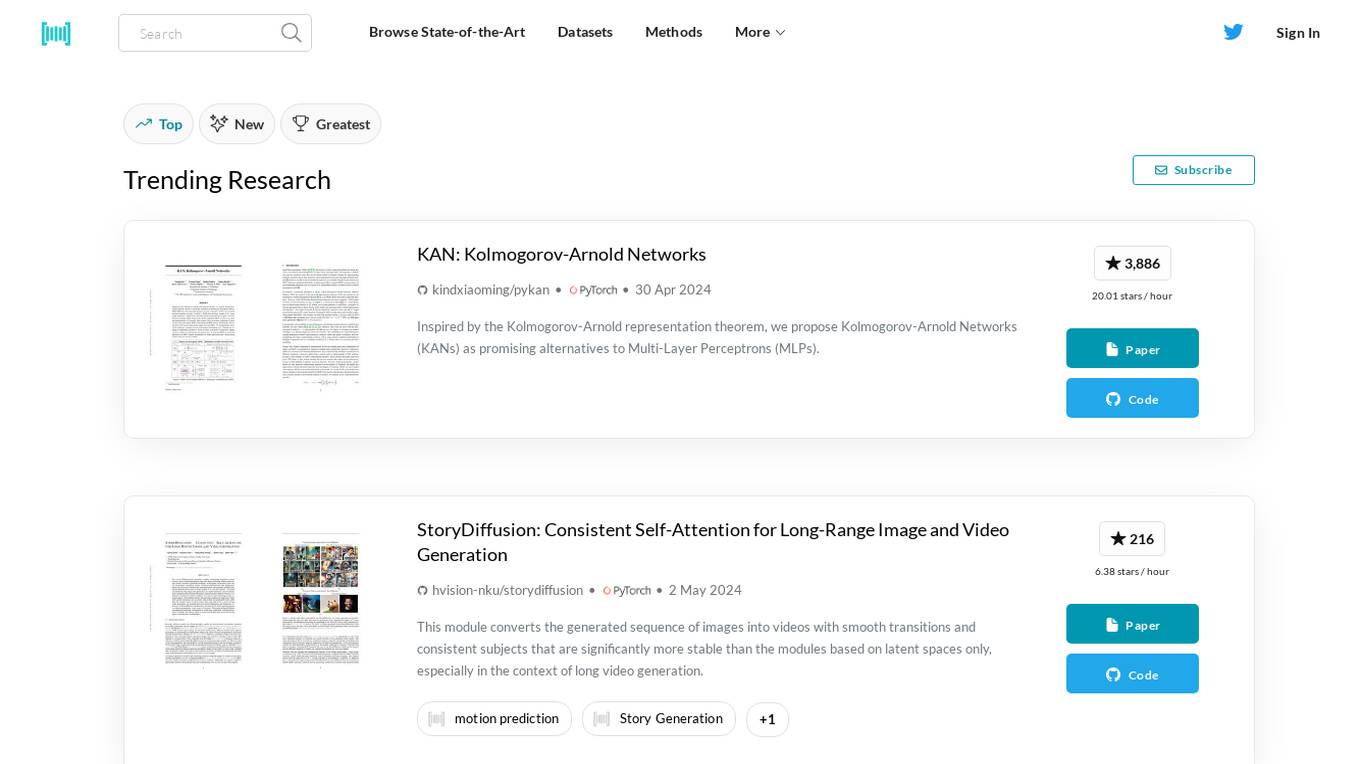
Papers With Code
Papers With Code is an AI tool that provides access to the latest research papers in the field of Machine Learning, along with corresponding code implementations. It offers a platform for researchers and enthusiasts to stay updated on state-of-the-art datasets, methods, and trends in the ML domain. Users can explore a wide range of topics such as language modeling, image generation, virtual try-on, and more through the collection of papers and code available on the website.
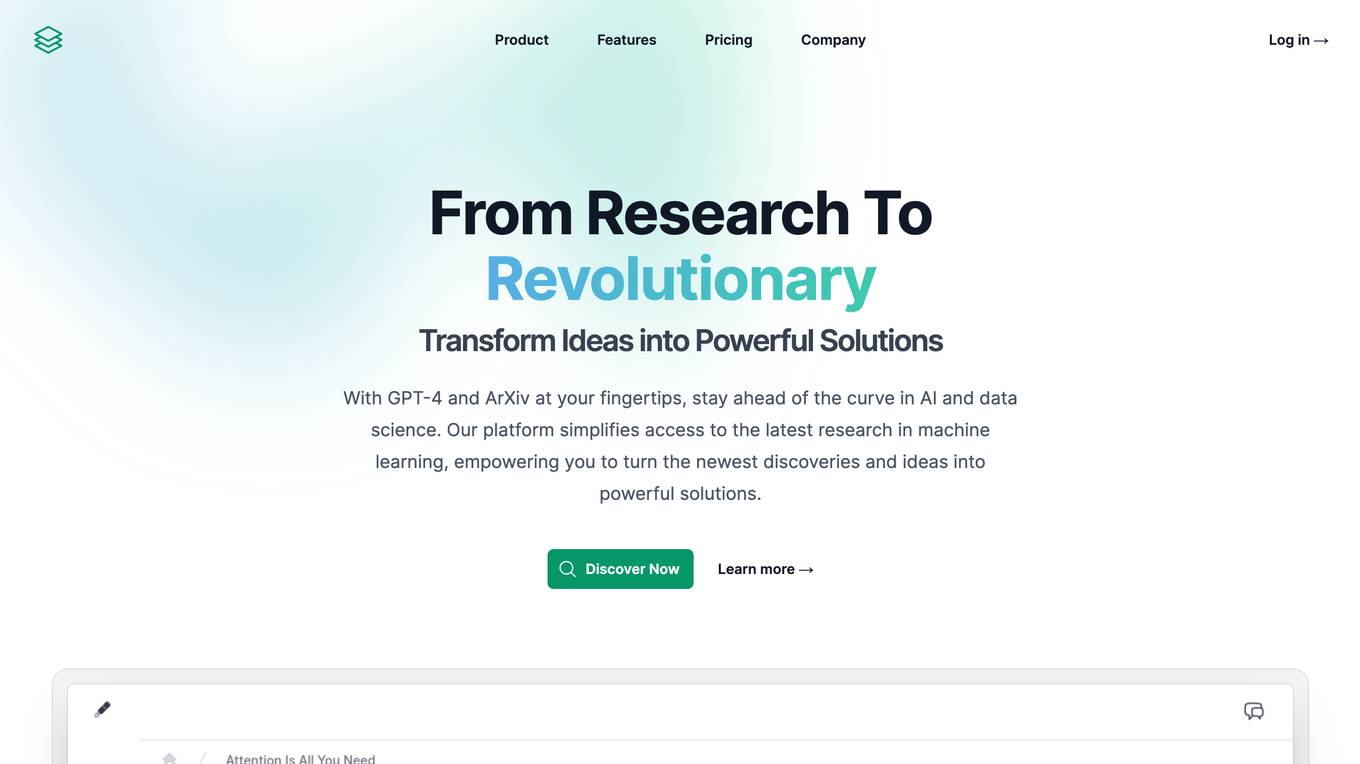
TextLayer
TextLayer is an AI-powered research companion that simplifies access to the latest research in machine learning. It empowers users to turn new discoveries into powerful solutions by providing personalized recommendations, AI-generated insights, and implementation support. The platform offers curated AI-generated summaries of research papers, tailored recommendations, and a chat integration for interacting with AI. TextLayer aims to bridge the gap between complex ML research papers and understanding, fostering curiosity, innovation, and shaping the future of Artificial Intelligence.
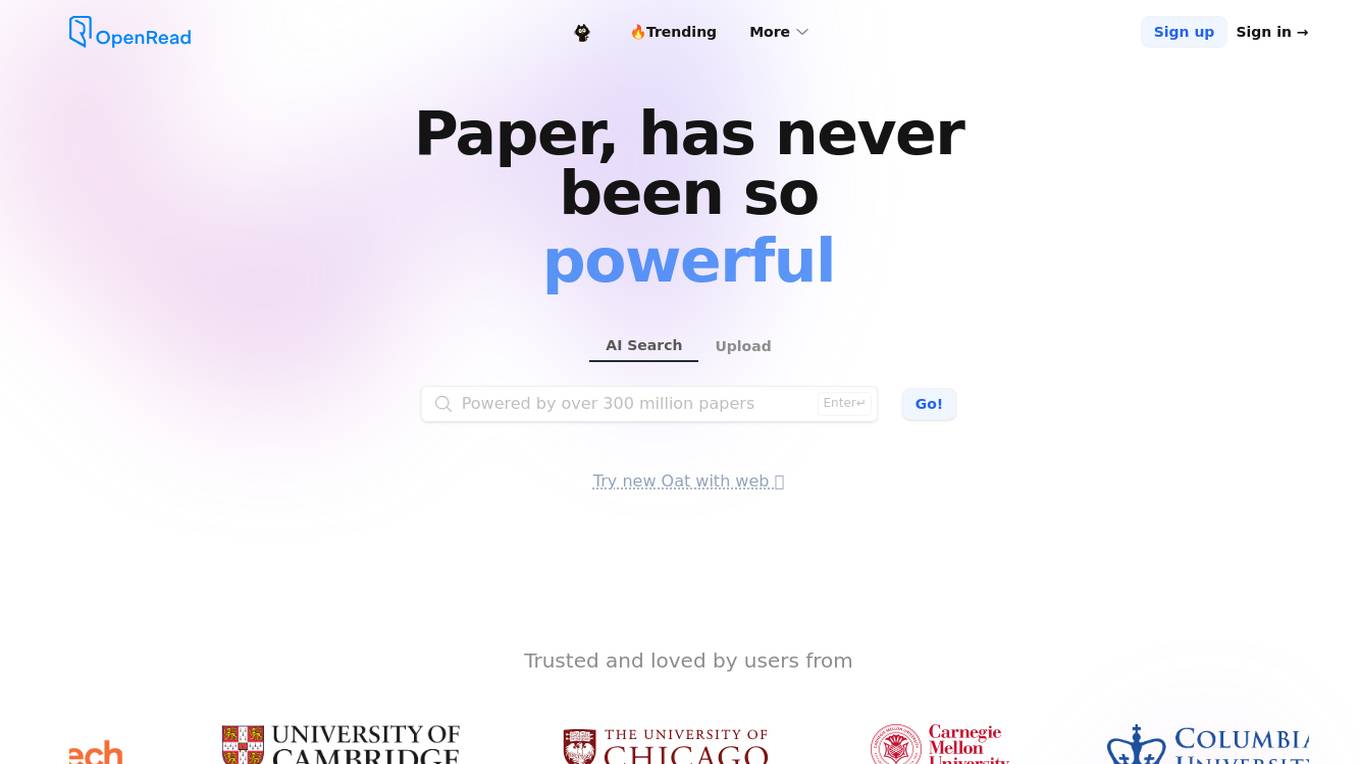
OpenRead
OpenRead is an AI-powered research tool that offers a seamless research experience by providing access to a vast repository of over 300 million papers and trillions of web sources. It allows users to search for papers in real-time, gain valuable insights, and explore trending research topics effortlessly. With features like paper Espresso, Paper Q&A, and related Paper Graph, OpenRead aims to enhance research productivity and knowledge organization. The tool also offers the ability to disable web support for focused tasks and remembers chat history for easy reference.
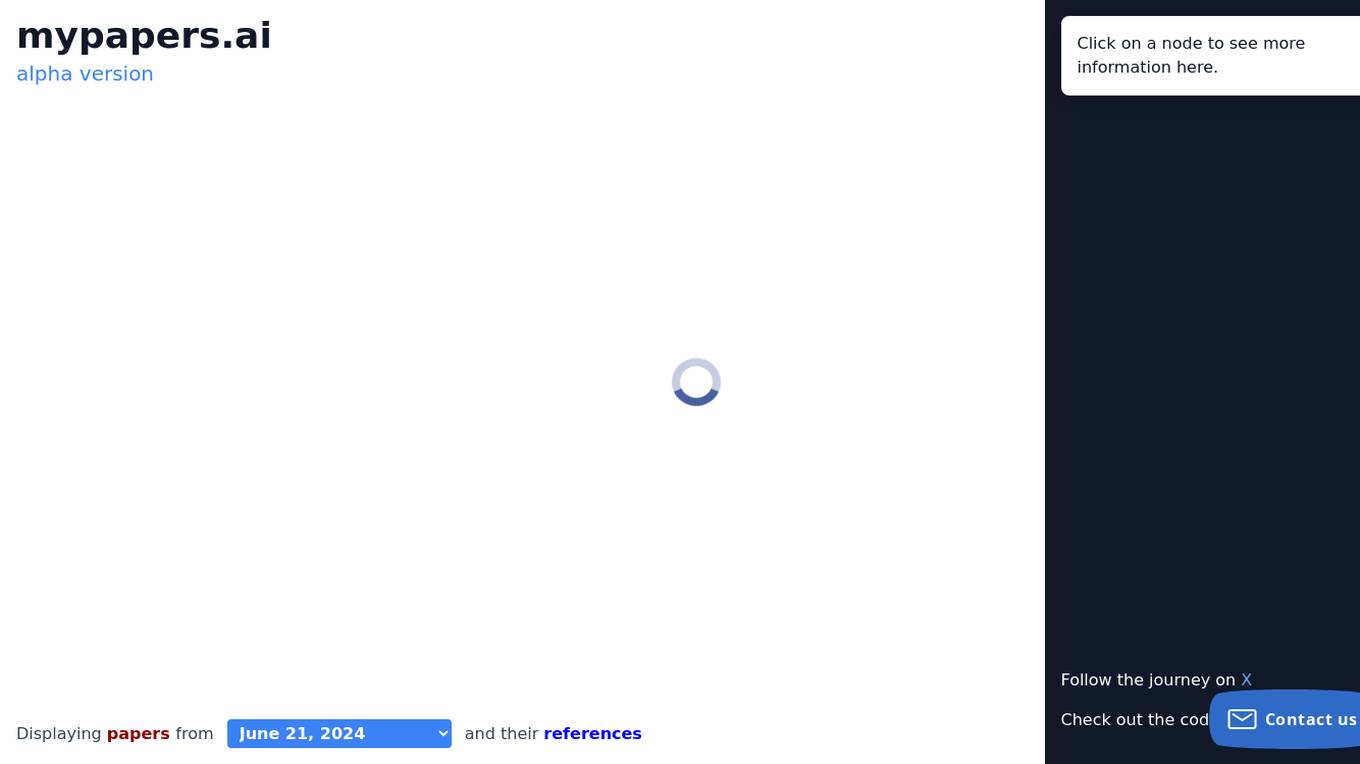
mypapers.ai
mypapers.ai is an AI tool designed to assist users in managing and analyzing academic papers efficiently. The tool offers features such as exploring papers and authors, toggling between papers and authors, and tracking the journey of research. Users can also access the code on GitHub to further enhance their research capabilities.
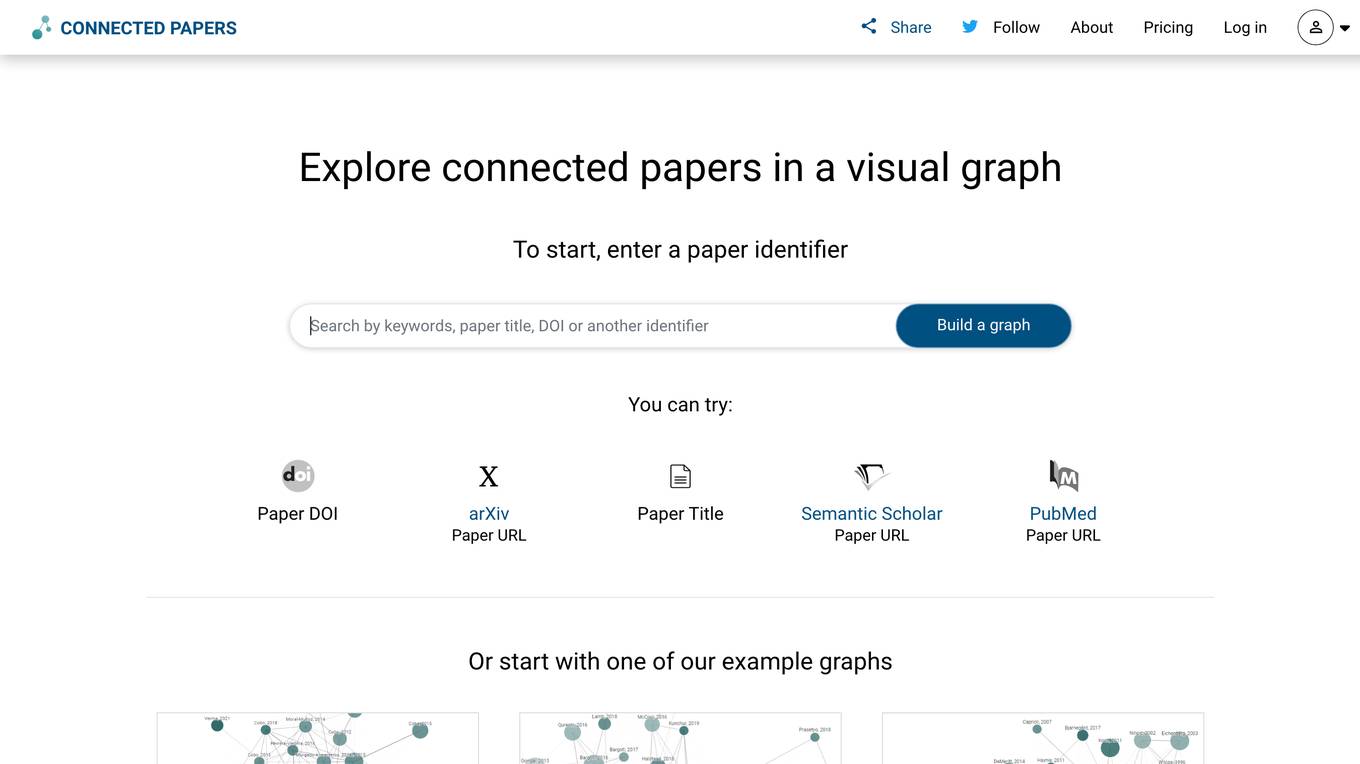
Connected Papers
Connected Papers is a search engine for academic papers that uses artificial intelligence to help users find and explore relevant research. It allows users to search for papers by keyword, author, or title, and then explore the connections between them. Connected Papers also provides a variety of tools to help users organize and manage their research, including the ability to create custom collections of papers, add notes and annotations, and share their research with others.

Papertalk.io
Papertalk.io is an AI-powered platform that revolutionizes research by providing users with access to over 215 million papers, AI-generated explanations, and actionable insights. The platform offers precision search tools, AI-powered understanding of research papers, and personalized guidance on applying insights practically. Papertalk.io aims to make research more accessible and approachable for users from diverse backgrounds, transforming complex data into easy-to-digest formats to foster innovation and expertise.
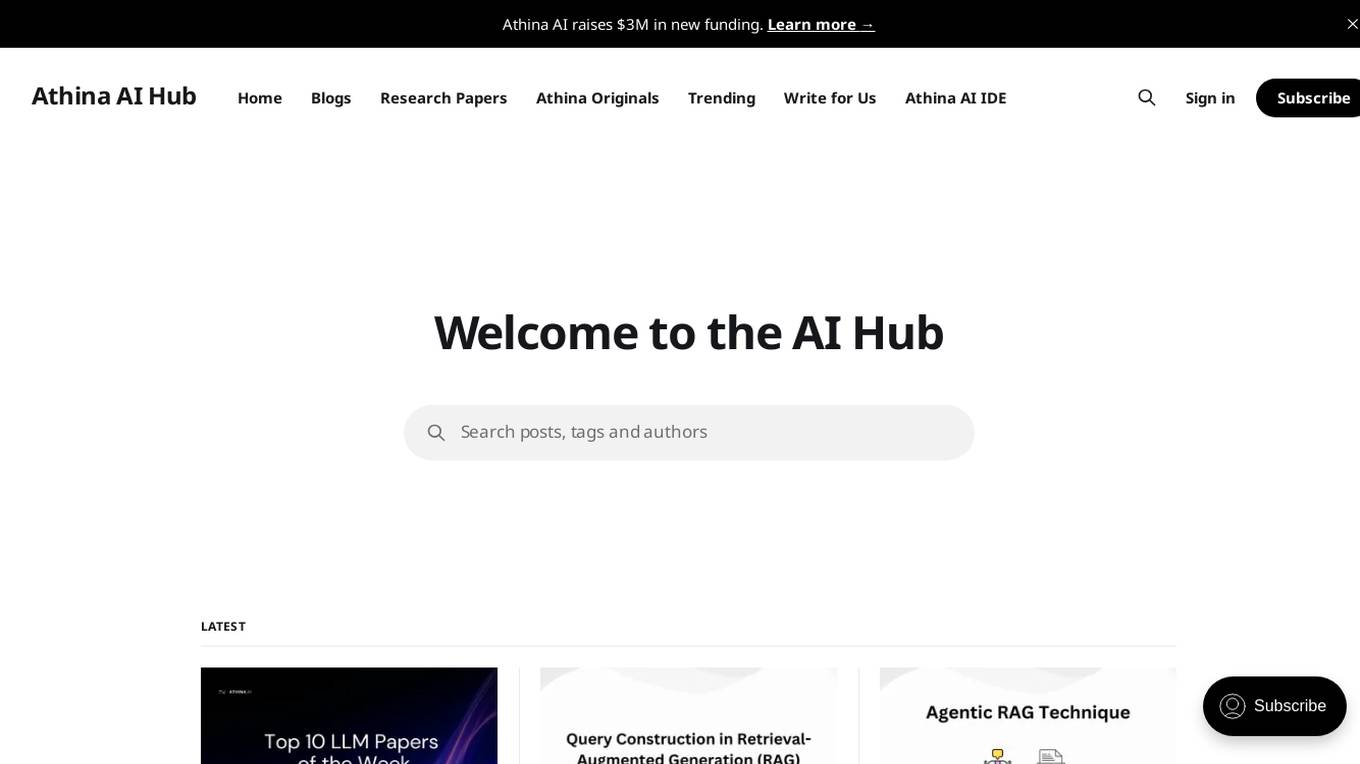
Athina AI Hub
Athina AI Hub is an ultimate resource for AI development teams, offering a wide range of AI development blogs, research papers, and original content. It provides valuable insights into cutting-edge technologies such as Large Language Models (LLMs), Retrieval-Augmented Generation (RAG), and AI agents. Athina AI Hub aims to empower AI engineers, researchers, data scientists, and product developers by offering comprehensive resources and fostering innovation in the field of Artificial Intelligence.
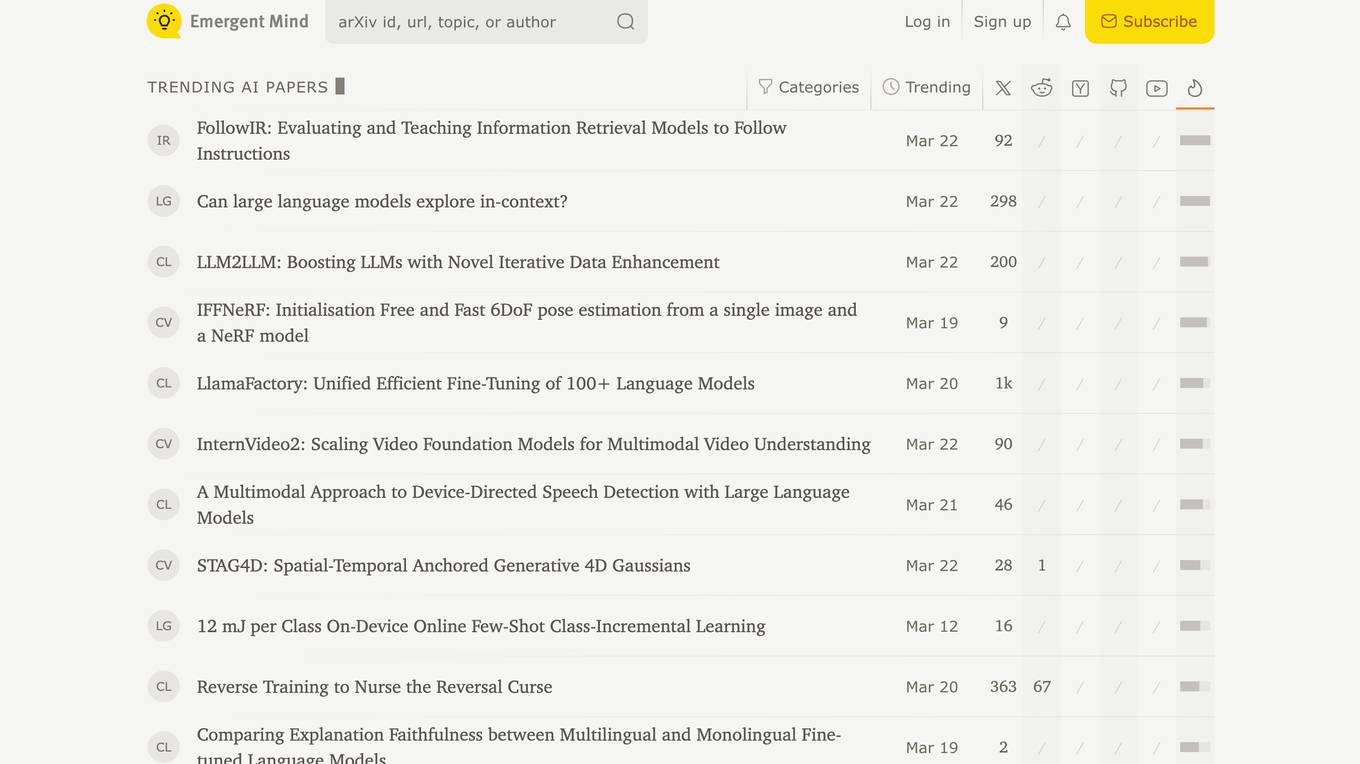
Emergent Mind
Emergent Mind is a website that provides access to trending AI papers. Users can browse papers by category, week, month, or year. The website also provides summaries of trending AI papers on Twitter.
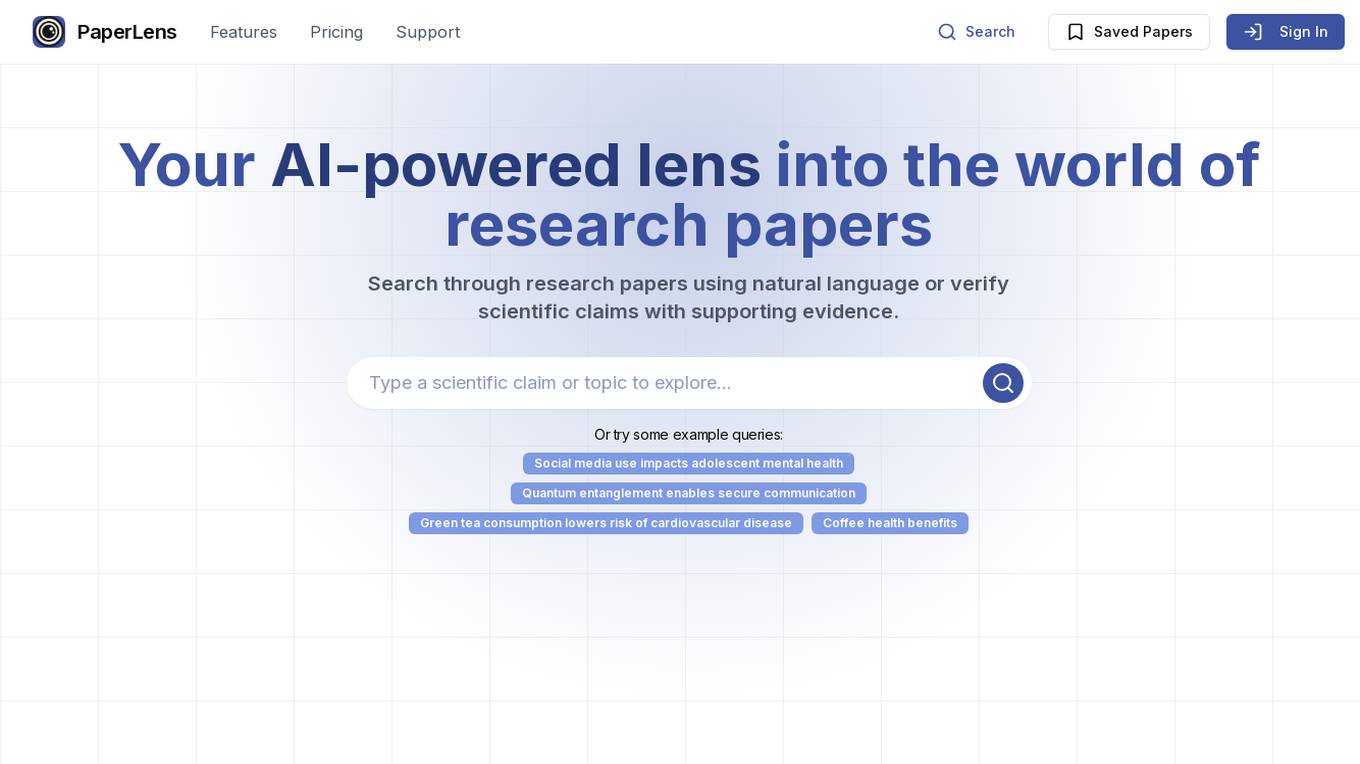
PaperLens
PaperLens is an AI-powered platform that serves as a lens into the world of research papers. It allows users to search through research papers using natural language or verify scientific claims with supporting evidence. The platform combines cutting-edge AI technology with intuitive design to help users find the most relevant academic research. PaperLens leverages state-of-the-art RAG (Retrieval-Augmented Generation) technology for precise, real-time results. Users can find relevant research papers based on meaning and context, filter results by publication date and relevance score, and benefit from simple, transparent pricing plans.
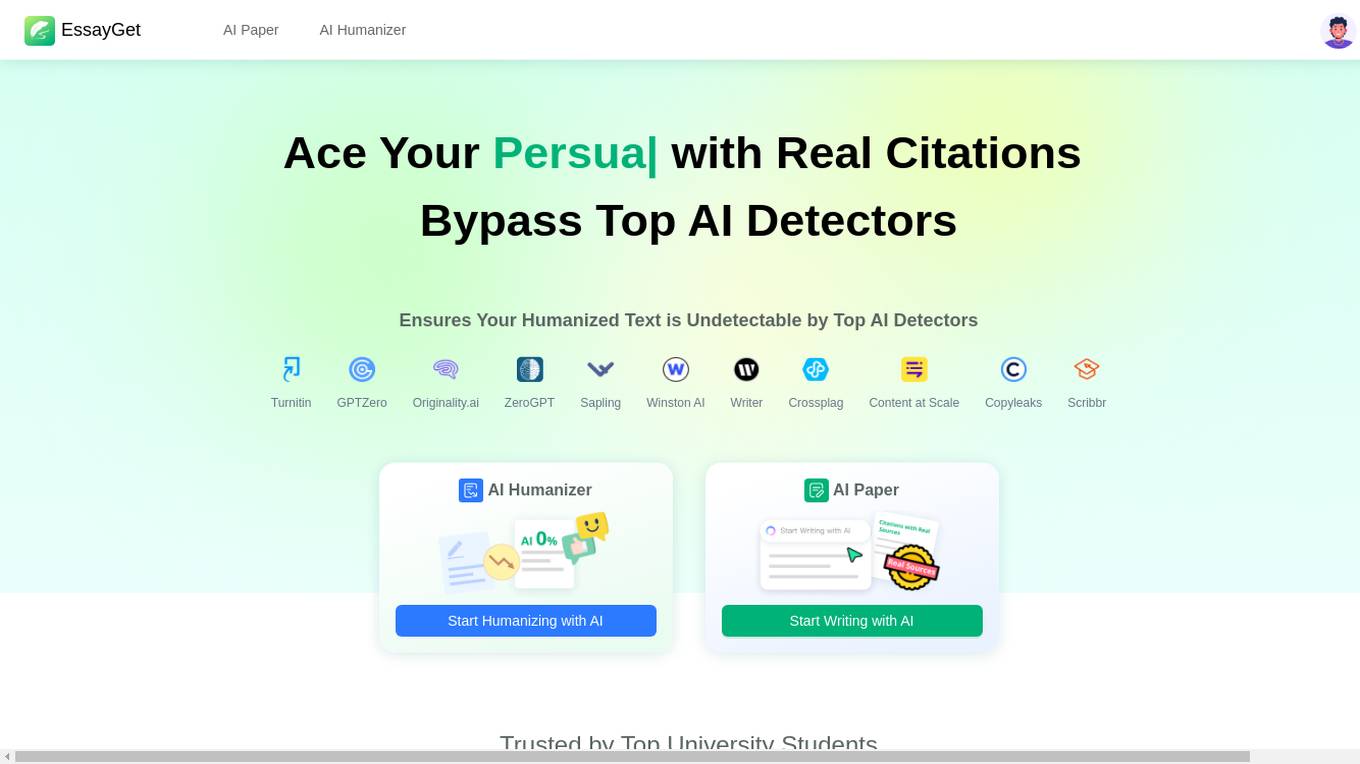
EssayGet
EssayGet is an AI tool designed to assist users in writing academic papers by providing features such as humanizing text, ensuring plagiarism-free content, generating in-text citations, and creating comprehensive outlines. The tool utilizes advanced algorithms to refine and rephrase writing, making it undetectable by top AI detectors like Turnitin, GPTZero, and Originality.ai. EssayGet aims to help students maintain the authenticity and originality of their work effortlessly, trusted by top university students for its reliable services.
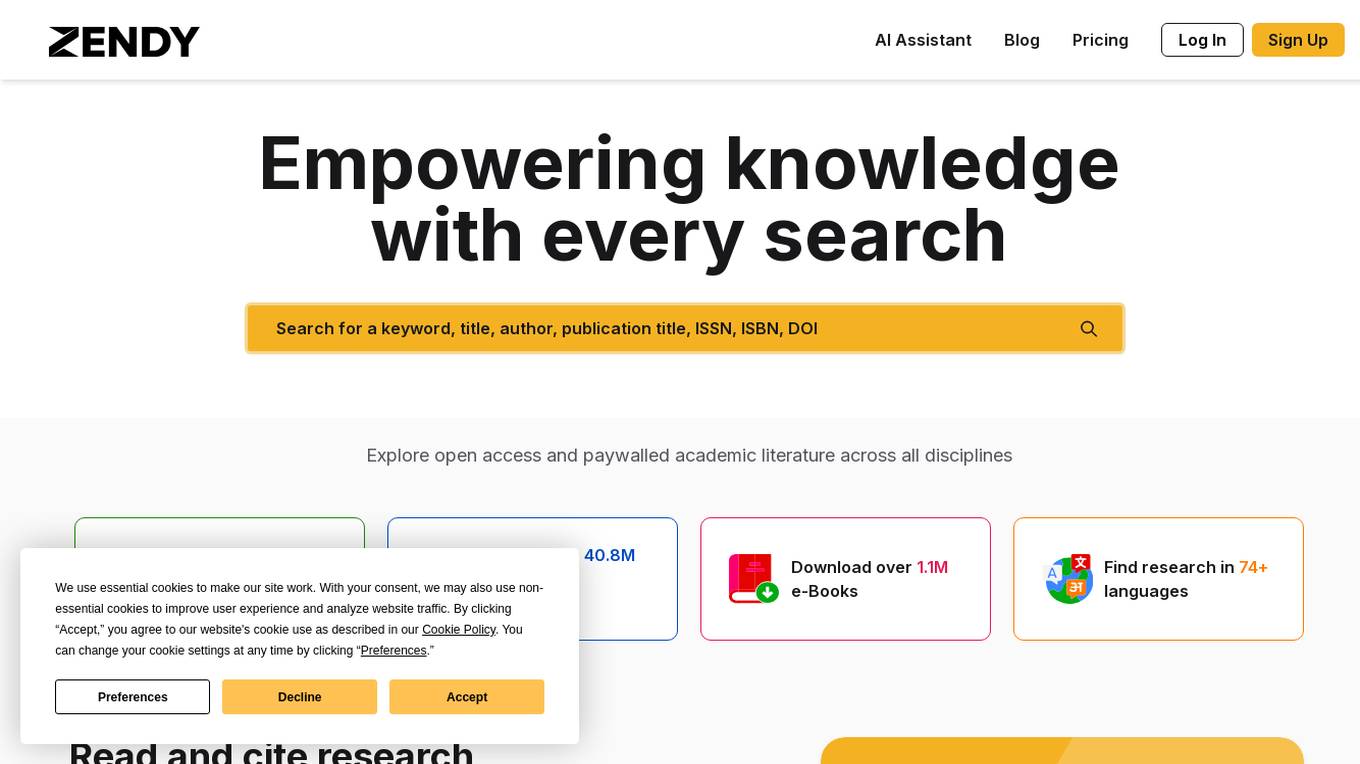
Zendy
Zendy is an AI-powered research library and AI assistant that empowers users to explore open access and paywalled academic literature across all disciplines. It offers tools for faster reading and citing of research papers, including AI summarization, key phrase highlighting, and organizing reading lists. With a user-friendly interface, Zendy helps users save time during literature review, making research more efficient and productive.

Floatz
Floatz is an AI tool designed for scientific research, aimed at inspiring individuals to create extraordinary things. The platform leverages artificial intelligence to assist researchers in their work, providing innovative solutions and insights to drive scientific discoveries. With a focus on creativity and imagination, Floatz empowers users to explore new possibilities and push the boundaries of knowledge in various fields of study.
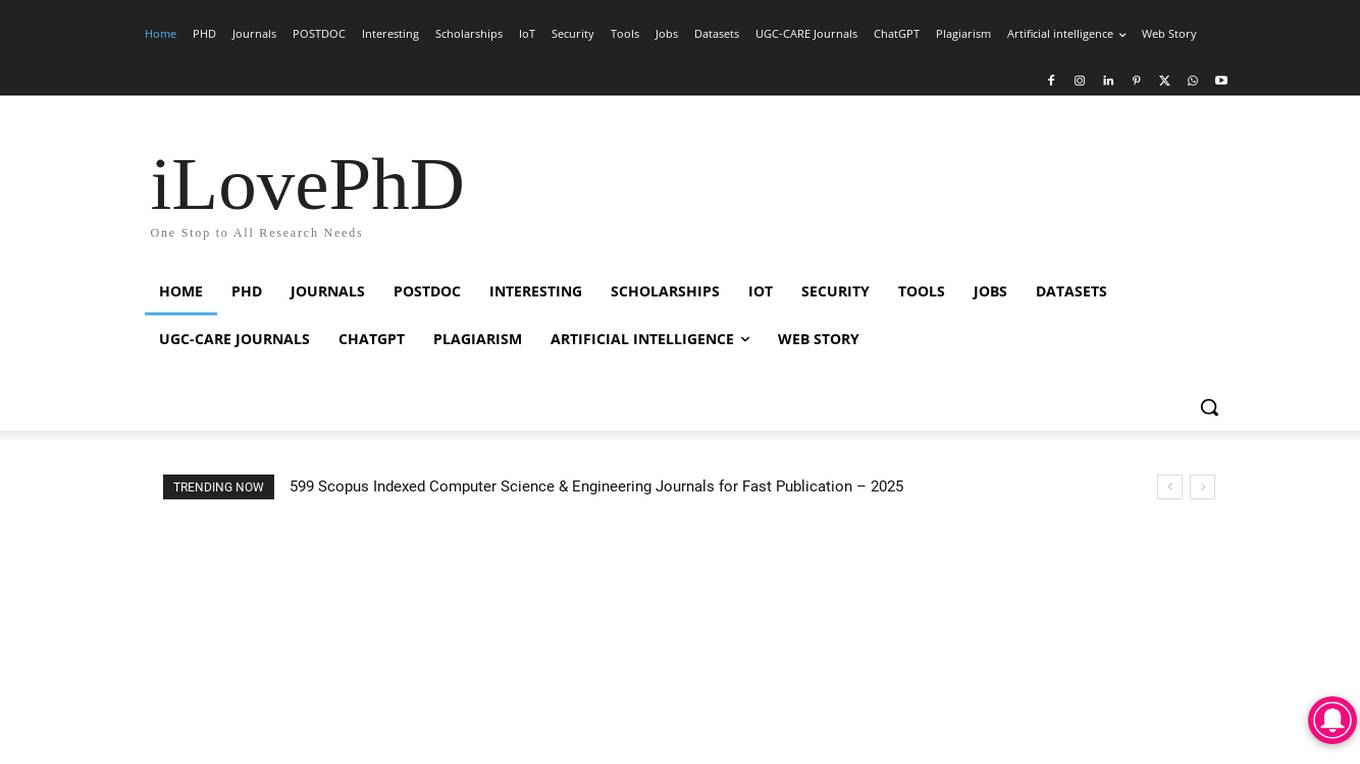
iLovePhD
iLovePhD is a comprehensive research platform that serves as a one-stop solution for all research needs. It offers a wide range of services including access to journals, postdoc opportunities, scholarships, IoT security tools, job listings, datasets, and UGC-CARE journals. The platform also features ChatGPT for plagiarism detection and artificial intelligence applications. iLovePhD aims to assist researchers and academicians in publishing impactful work and staying updated with the latest trends in the academic world.
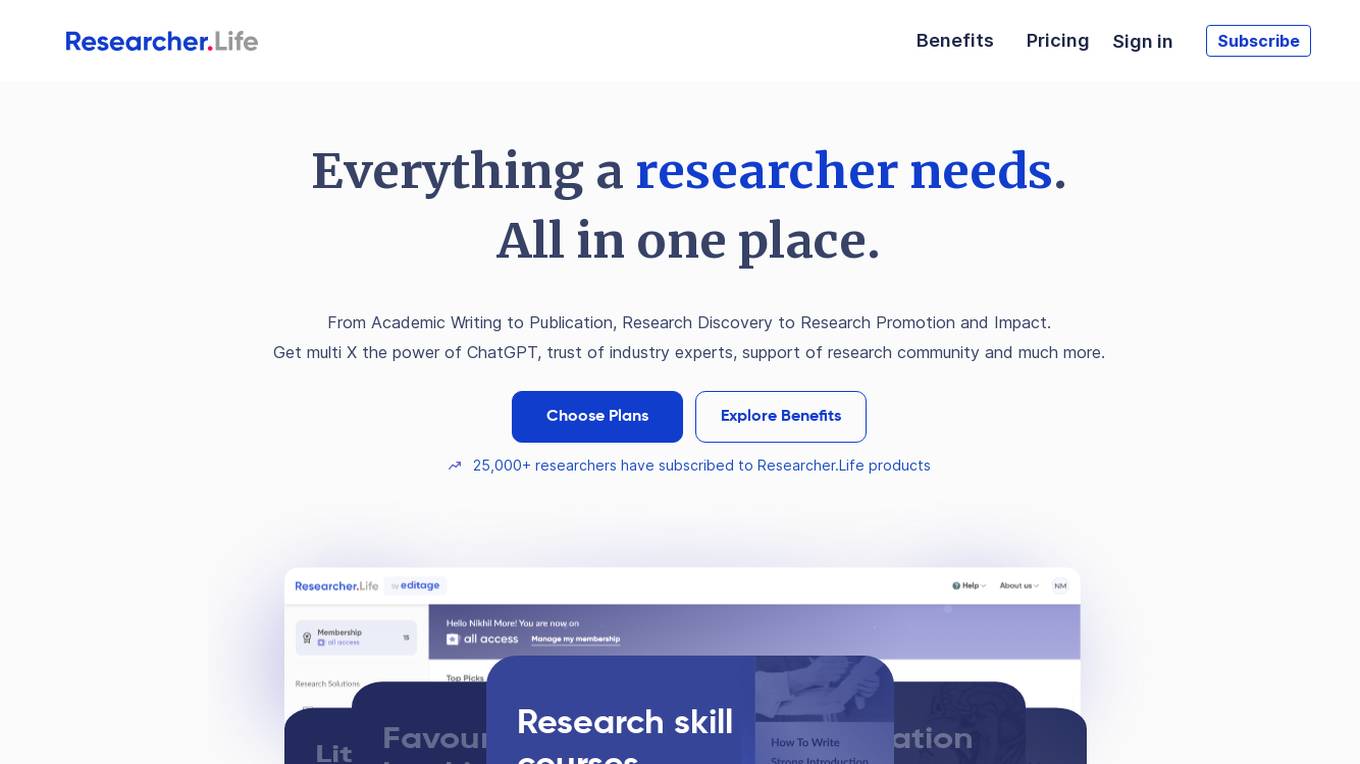
Researcher.Life
Researcher.Life is a comprehensive research support platform that provides AI-powered tools and expert publication services to empower researchers at every stage of their journey. With a suite of advanced AI tools, including Paperpal, R Discovery, and Mind the Graph, Researcher.Life helps researchers write better, discover relevant literature, create stunning scientific illustrations, and find the right journals for their work. Additionally, Researcher.Life offers expert publication services from Editage, ensuring that manuscripts are polished and ready for publication. By combining AI technology with human expertise, Researcher.Life simplifies complex research tasks, saves time, and accelerates the path to success for researchers worldwide.

BioloGPT
BioloGPT is an AI tool designed to answer biology-related questions with insights and graphs. It provides information on various topics such as maintaining a healthy gut microbiome, foods for a healthy immune system, effects of cannabis on the brain, risks of Covid-19 vaccines, and advancements in psoriasis treatment. The tool is updated daily and cites full papers to support its answers.
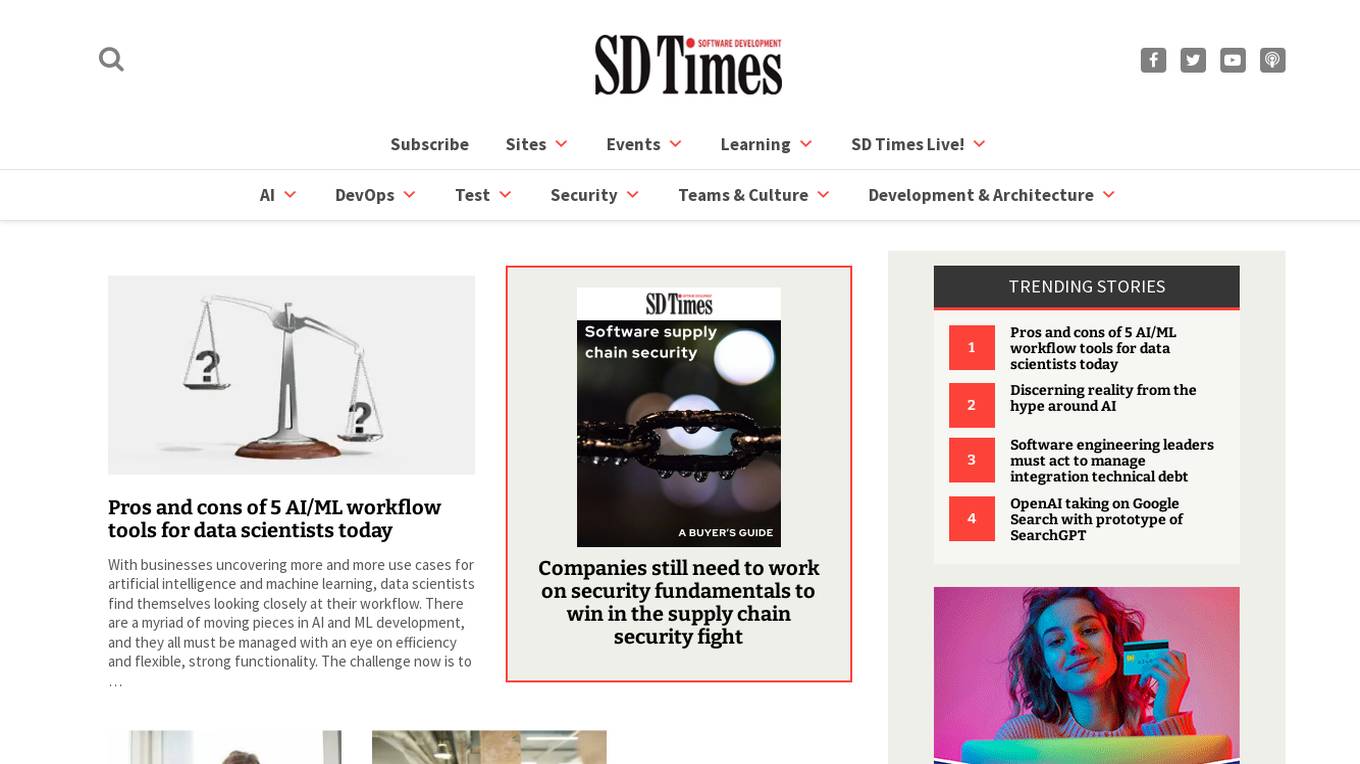
SD Times
The website is a comprehensive platform for software development news, covering a wide range of topics such as AI, DevOps, Observability, CI/CD, Cloud Native, Data, Test Automation, Mobile, API, Performance, Security, DevSecOps, Enterprise Security, Supply Chain Security, Teams & Culture, Dev Manager, Agile, Value Stream, Productivity, and more. It provides news articles, webinars, podcasts, and white papers to keep developers informed about the latest trends and technologies in the software development industry.
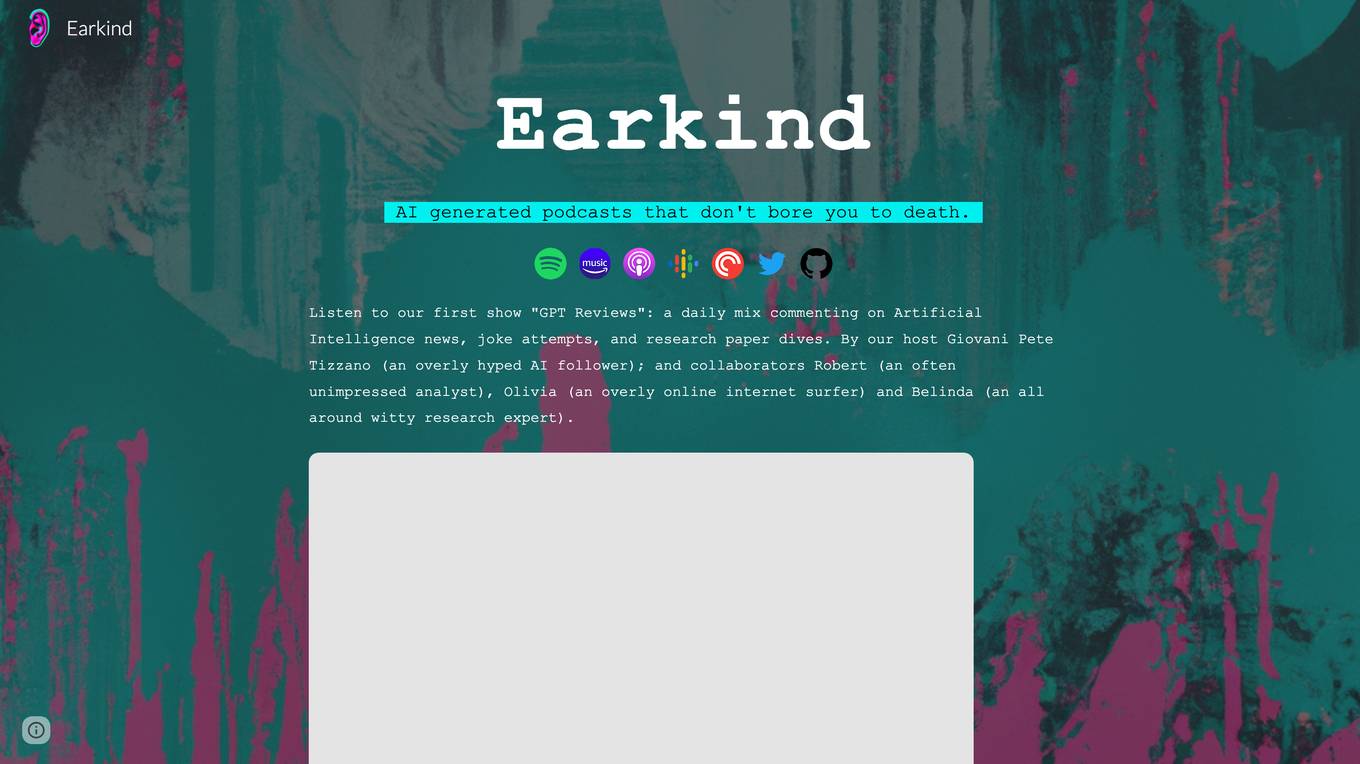
Earkind
Earkind is an AI-generated podcast platform that offers engaging and entertaining content by combining language models with neural expressive text-to-speech and programmatic audio editing. The platform creates full podcast episodes based on selected news and research papers, featuring lively discussions between fictional characters. Earkind aims to provide a fun and non-serious approach to Artificial Intelligence news and research, with a focus on personalized audio content.

Medical News Hub
The website is a comprehensive platform providing medical news, articles, and resources covering a wide range of health topics such as COVID-19, artificial intelligence in healthcare, diseases, treatments, and medical advancements. It offers insights from experts, interviews, white papers, and newsletters in the fields of medicine and life sciences. Users can access information on various health categories, research findings, safety summaries, and trending stories in the medical and life sciences domains.
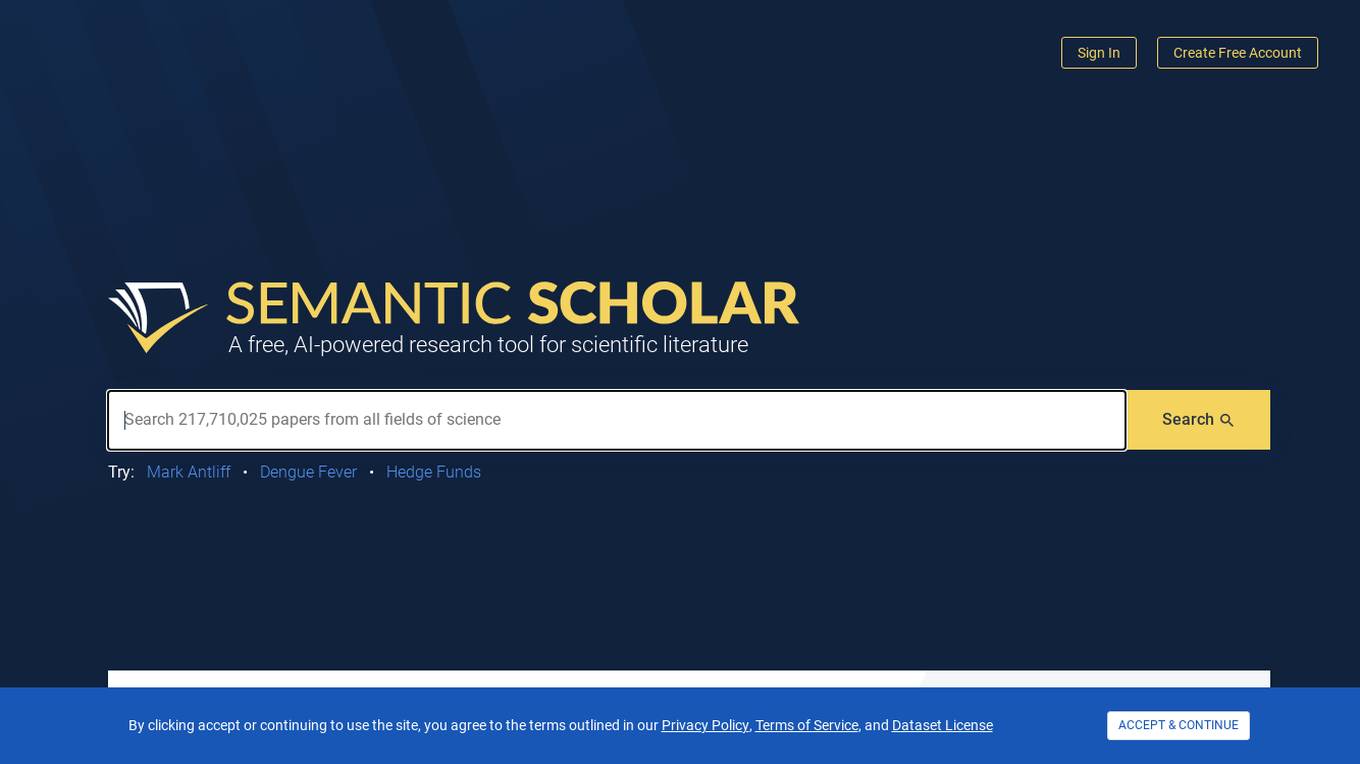
Semantic Scholar
Semantic Scholar is a free, AI-powered research tool for scientific literature. It is based at the Allen Institute for AI and provides access to over 217 million papers from all fields of science. Semantic Scholar uses AI to help users discover and explore scientific literature, and to stay up-to-date on the latest research. The tool also includes a number of features to help users manage their research, such as the ability to save papers, create bibliographies, and share research with others.
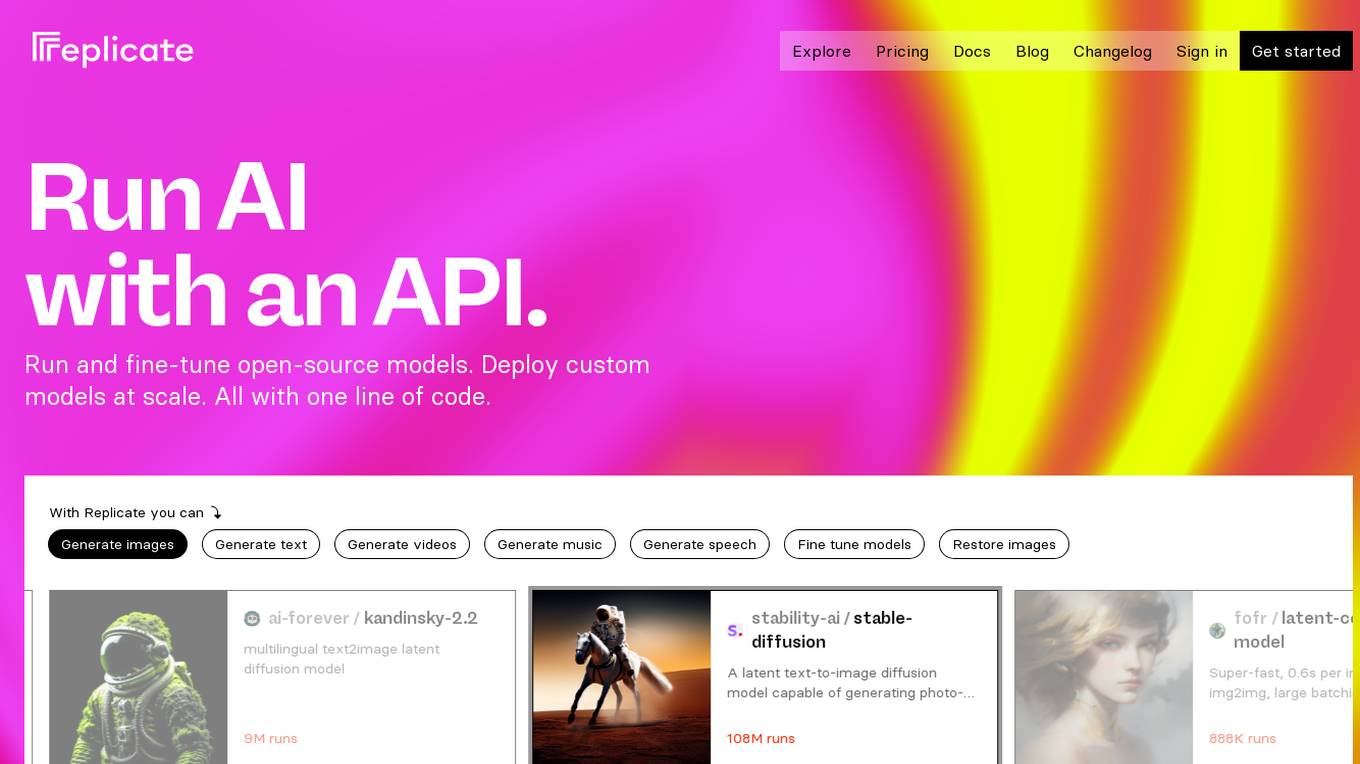
Replicate
Replicate is an AI tool that allows users to run and fine-tune open-source models, deploy custom models at scale, and generate images, text, videos, music, and speech with just one line of code. It provides a platform for the community to contribute and explore thousands of production-ready AI models, enabling users to push the boundaries of AI beyond academic papers and demos. With features like fine-tuning models, deploying custom models, and scaling on Replicate, users can easily create and deploy AI solutions for various tasks.
1 - Open Source AI Tools
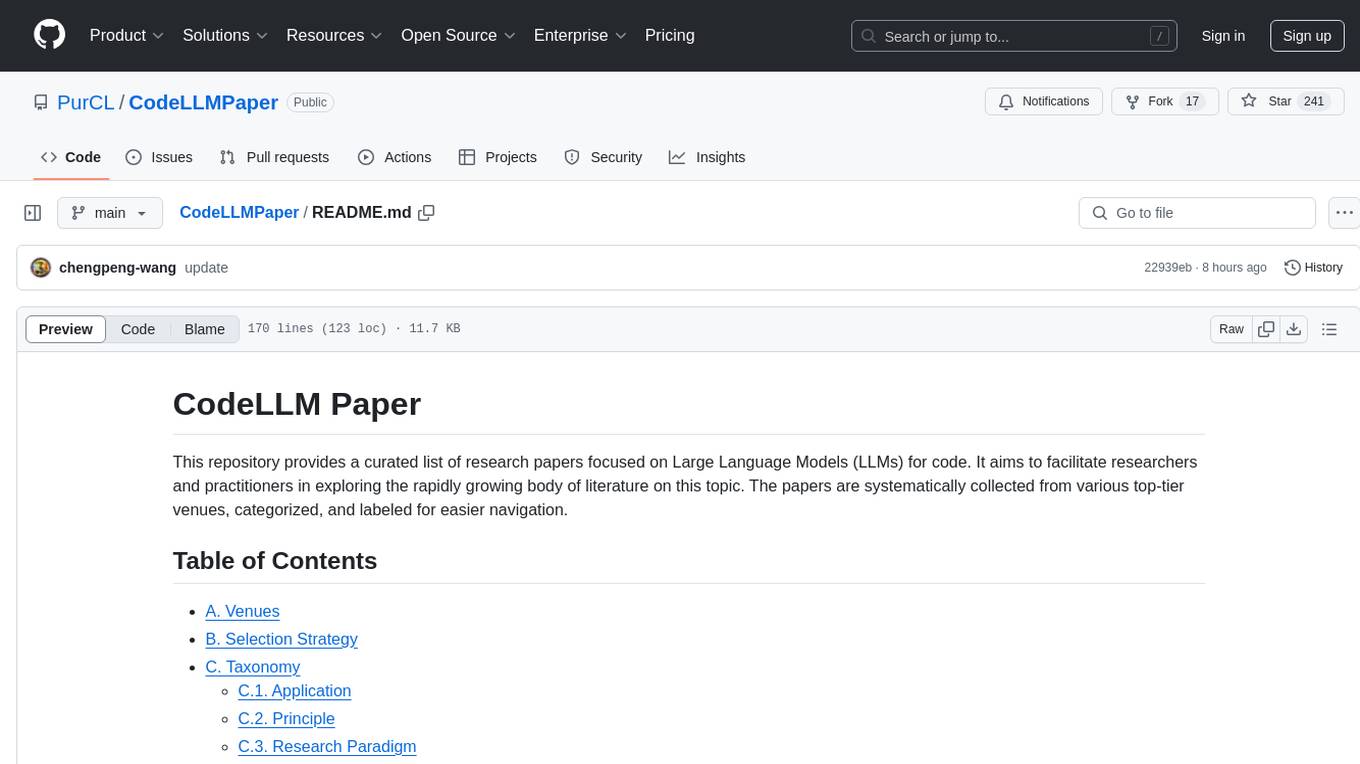
CodeLLMPaper
CodeLLM Paper repository provides a curated list of research papers focused on Large Language Models (LLMs) for code. It aims to facilitate researchers and practitioners in exploring the rapidly growing body of literature on this topic. The papers are systematically collected from various top-tier venues, categorized, and labeled for easier navigation. The selection strategy involves abstract extraction, keyword matching, relevance check using LLMs, and manual labeling. The papers are categorized based on Application, Principle, and Research Paradigm dimensions. Contributions to expand the repository are welcome through PR submission, issue submission, or request for batch updates. The repository is intended solely for research purposes, with raw data sourced from publicly available information on ACM, IEEE, and corresponding conference websites.
20 - OpenAI Gpts
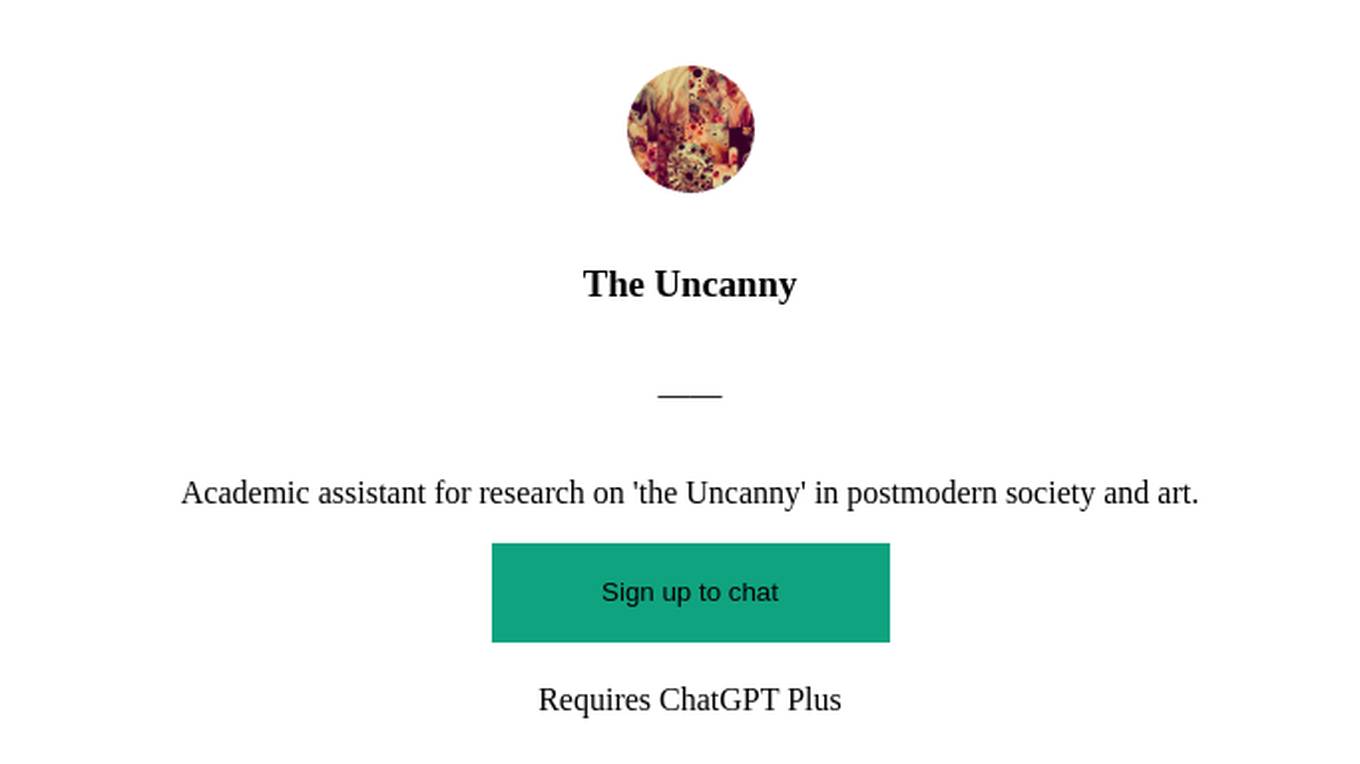
The Uncanny
Academic assistant for research on 'the Uncanny' in postmodern society and art.
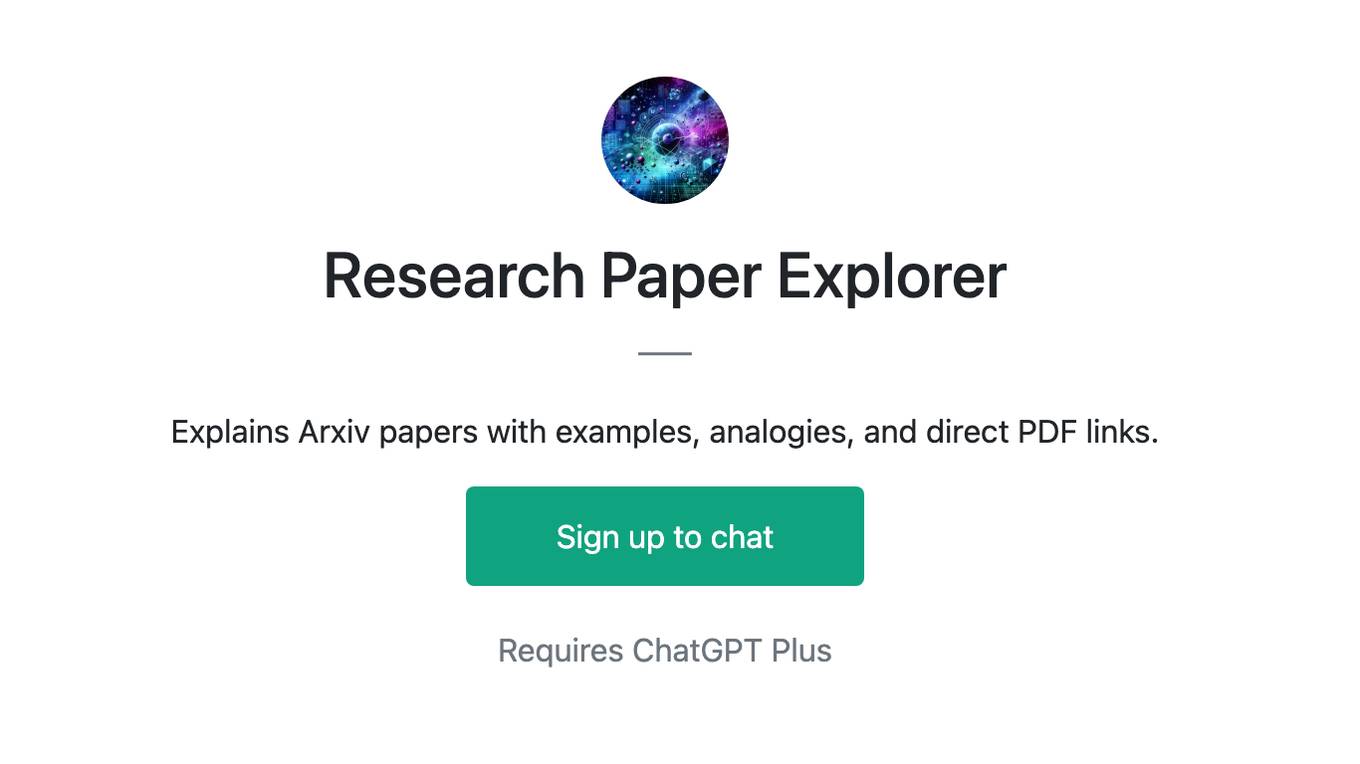
Research Paper Explorer
Explains Arxiv papers with examples, analogies, and direct PDF links.
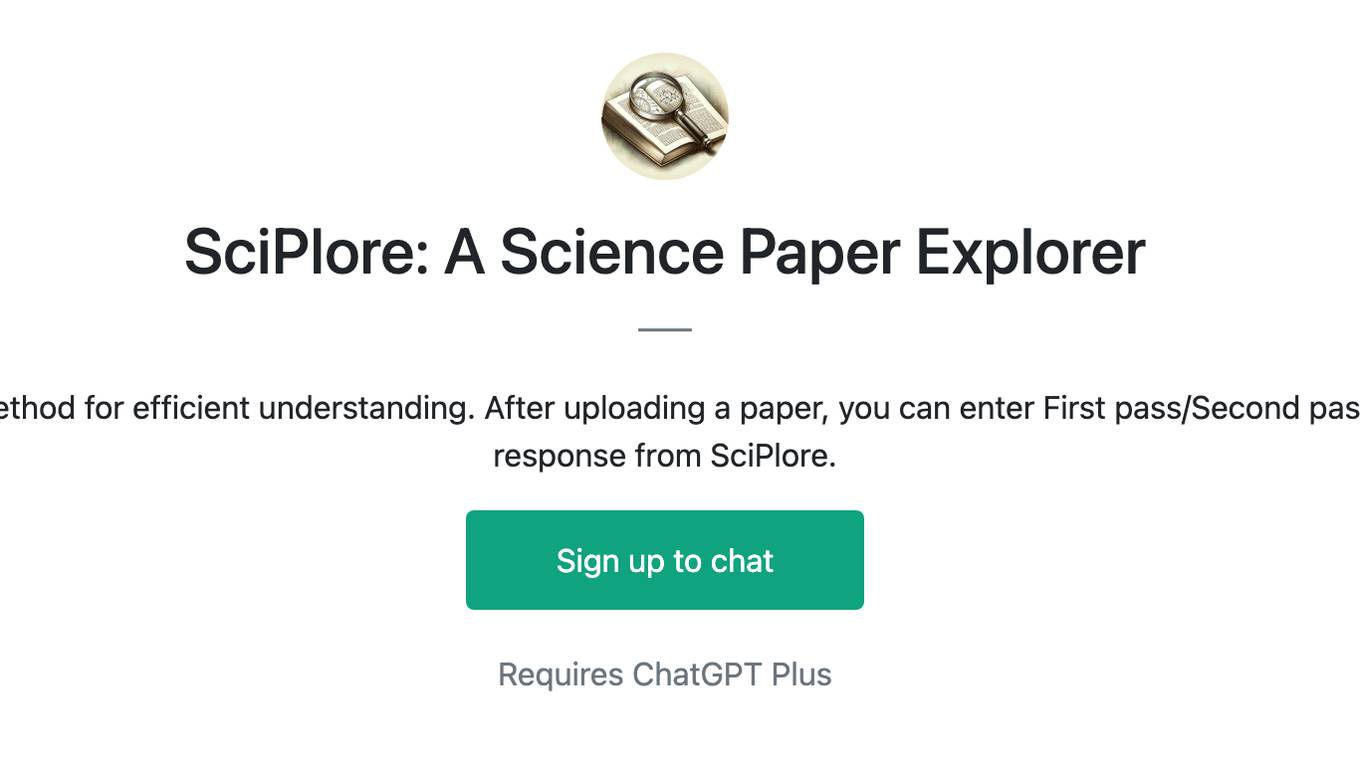
SciPlore: A Science Paper Explorer
Explain scientific papers using the 3-pass method for efficient understanding. After uploading a paper, you can enter First pass/Second pass /Third pass / Q&A to get different level of response from SciPlore.
Amalgamated Intermittent Computing Systems Expert
Know the details about the Amalgamated Intermittent Computing Systems paper
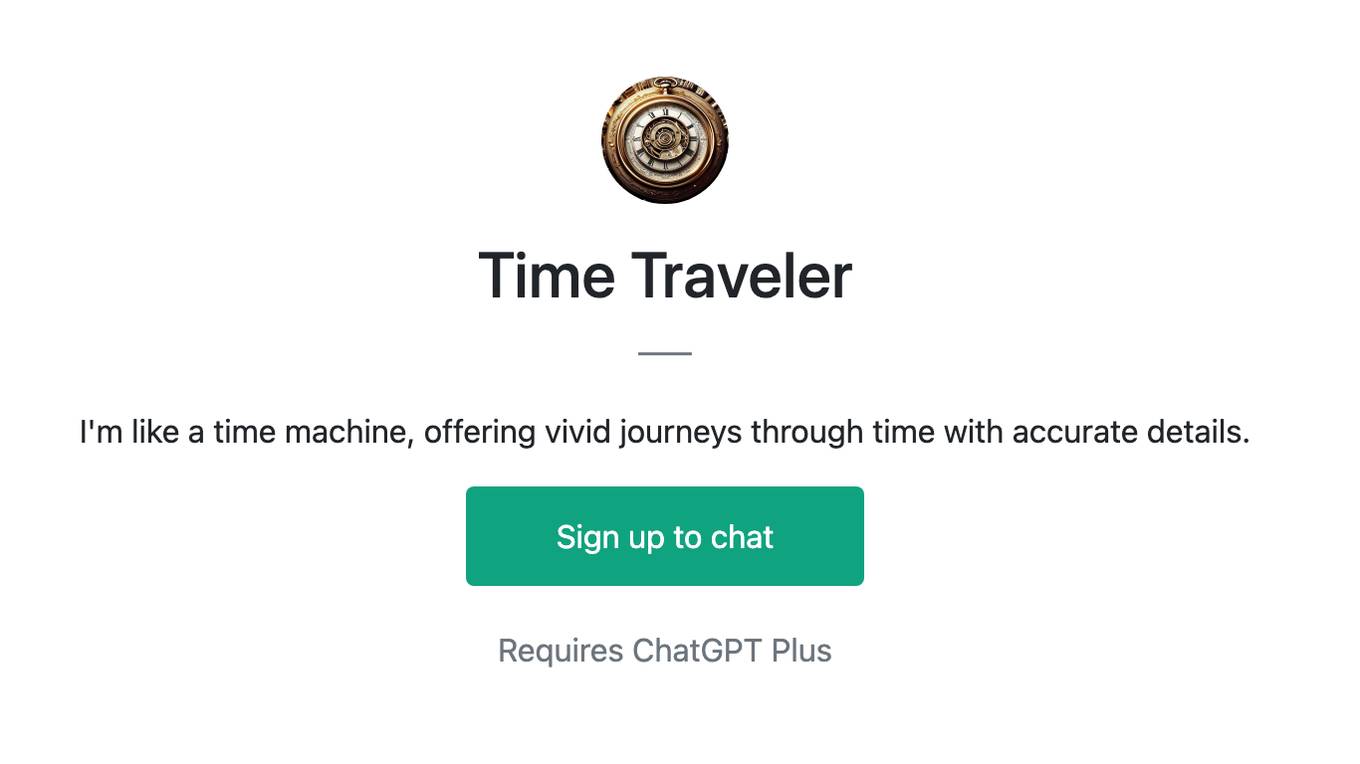
Time Traveler
I'm like a time machine, offering vivid journeys through time with accurate details.
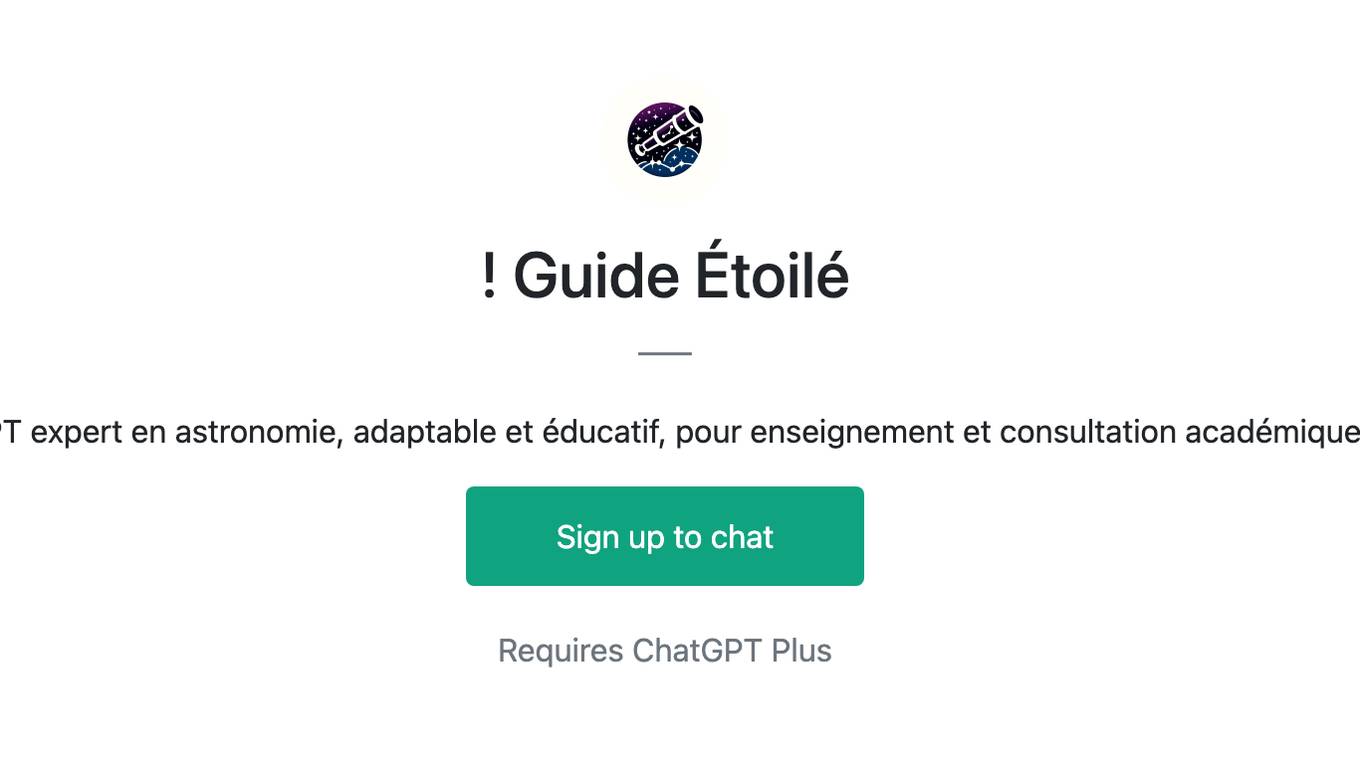
! Guide Étoilé
GPT expert en astronomie, adaptable et éducatif, pour enseignement et consultation académique.
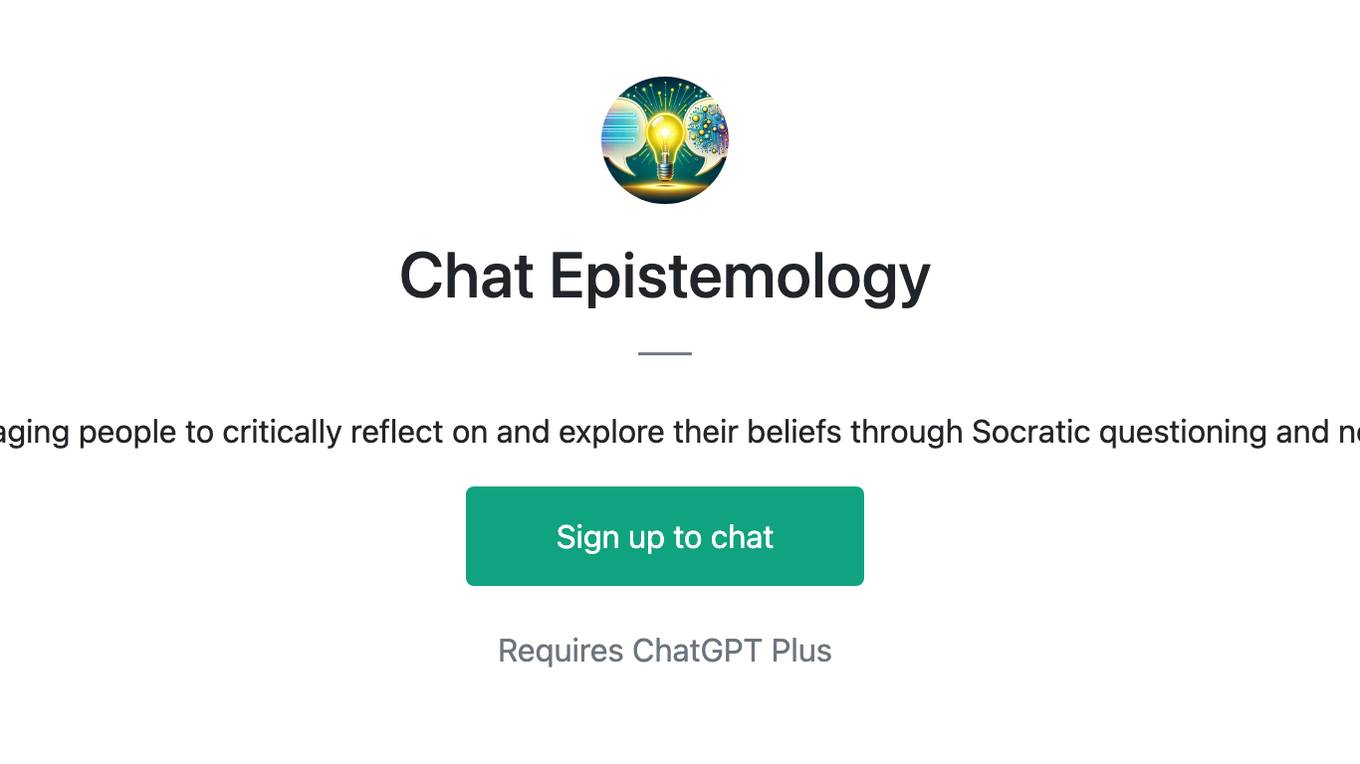
Chat Epistemology
I specialize in encouraging people to critically reflect on and explore their beliefs through Socratic questioning and neutral conversation.
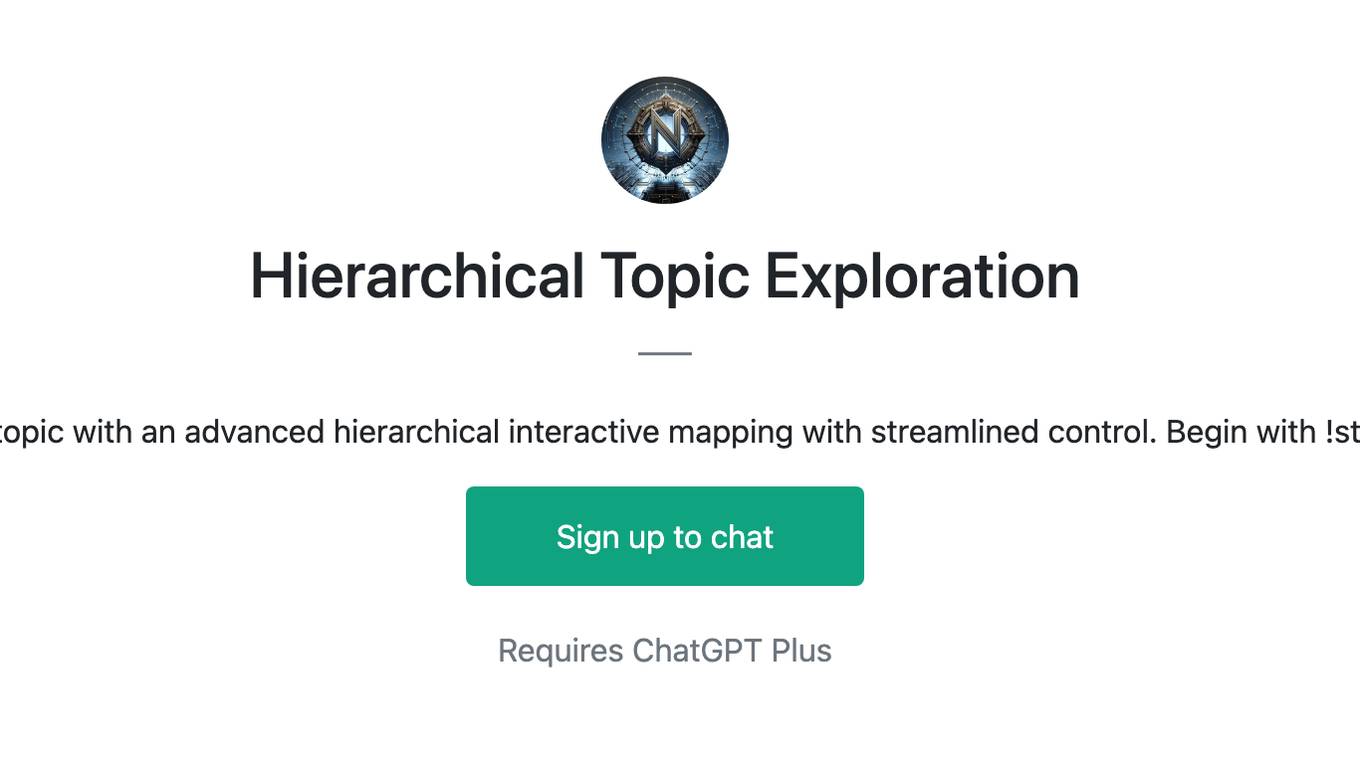
Hierarchical Topic Exploration
Explore any topic with an advanced hierarchical interactive mapping with streamlined control. Begin with !start [topic].
